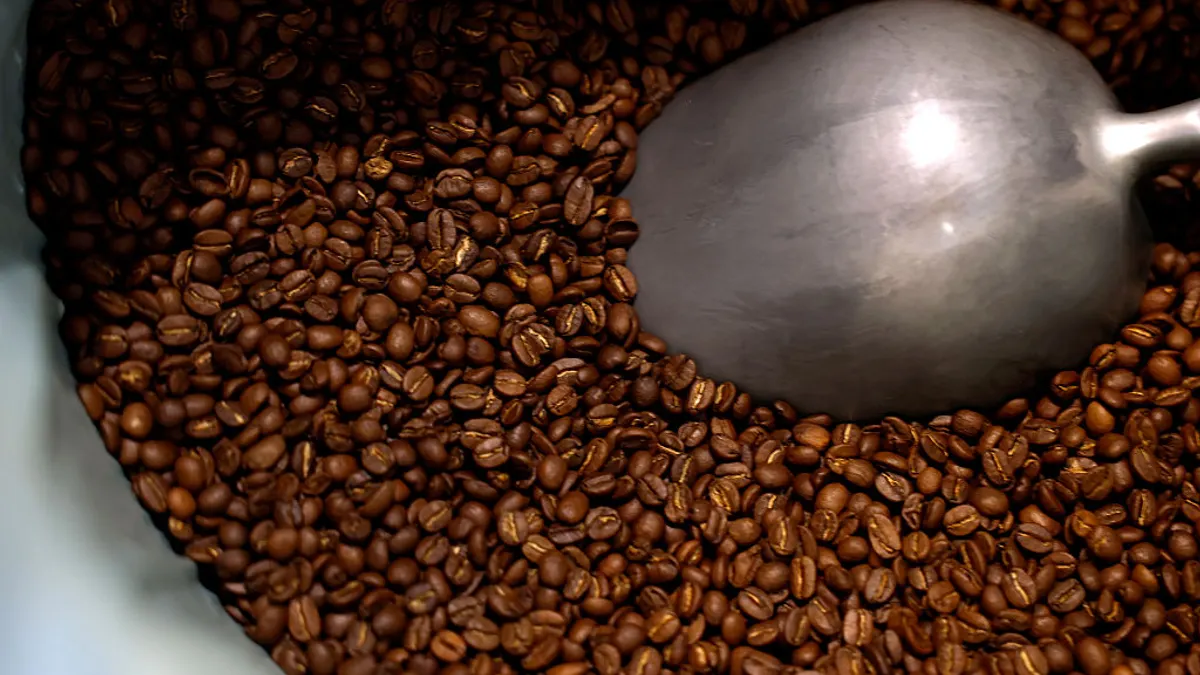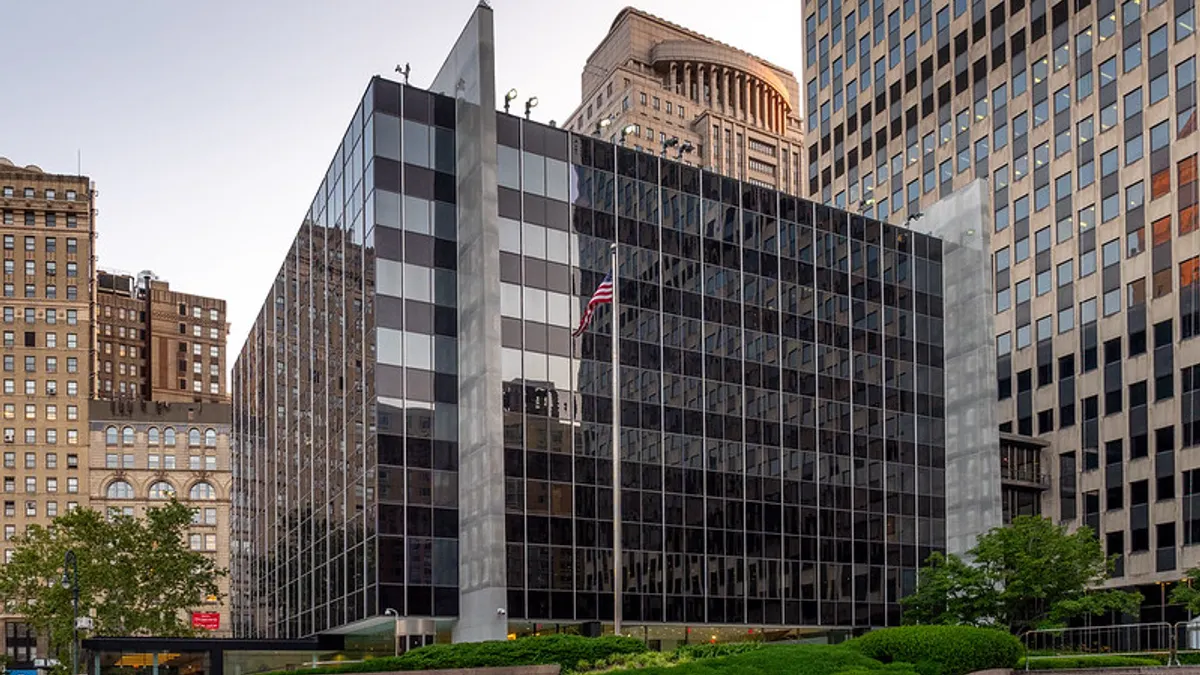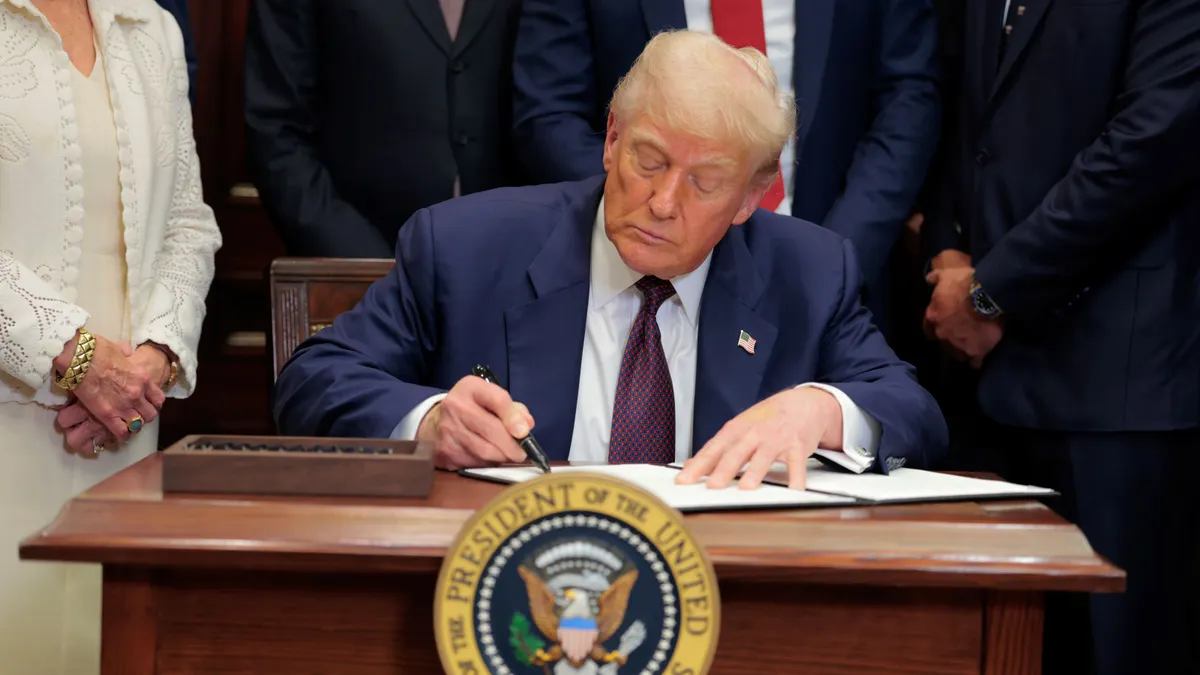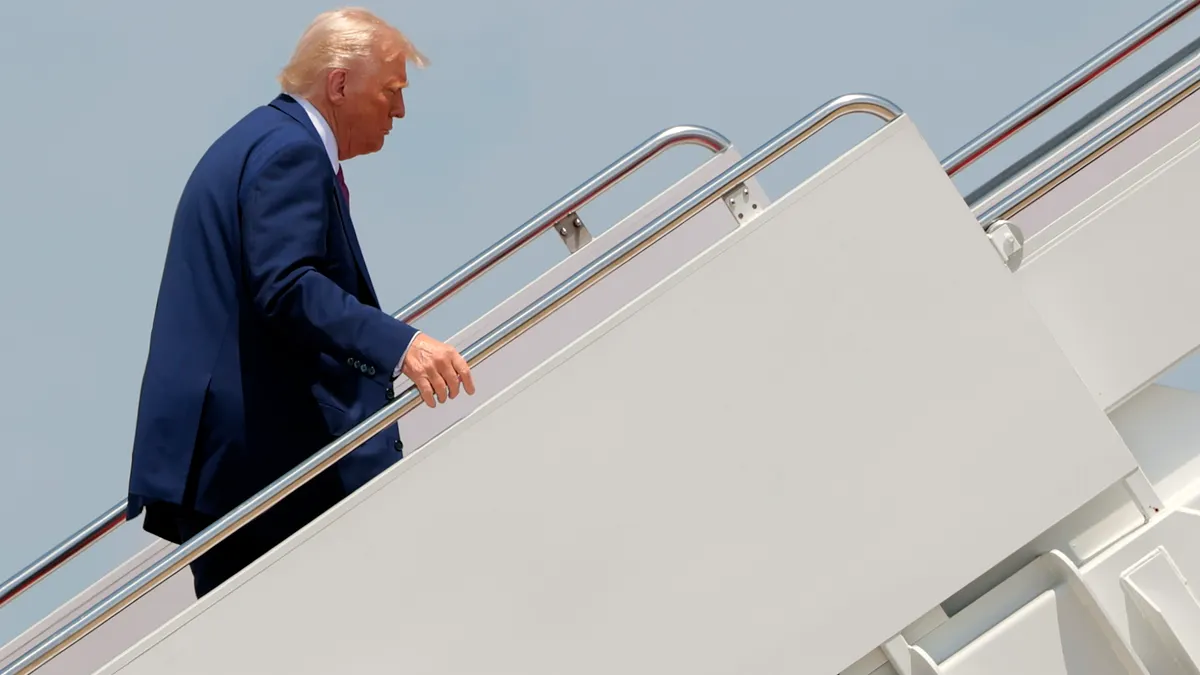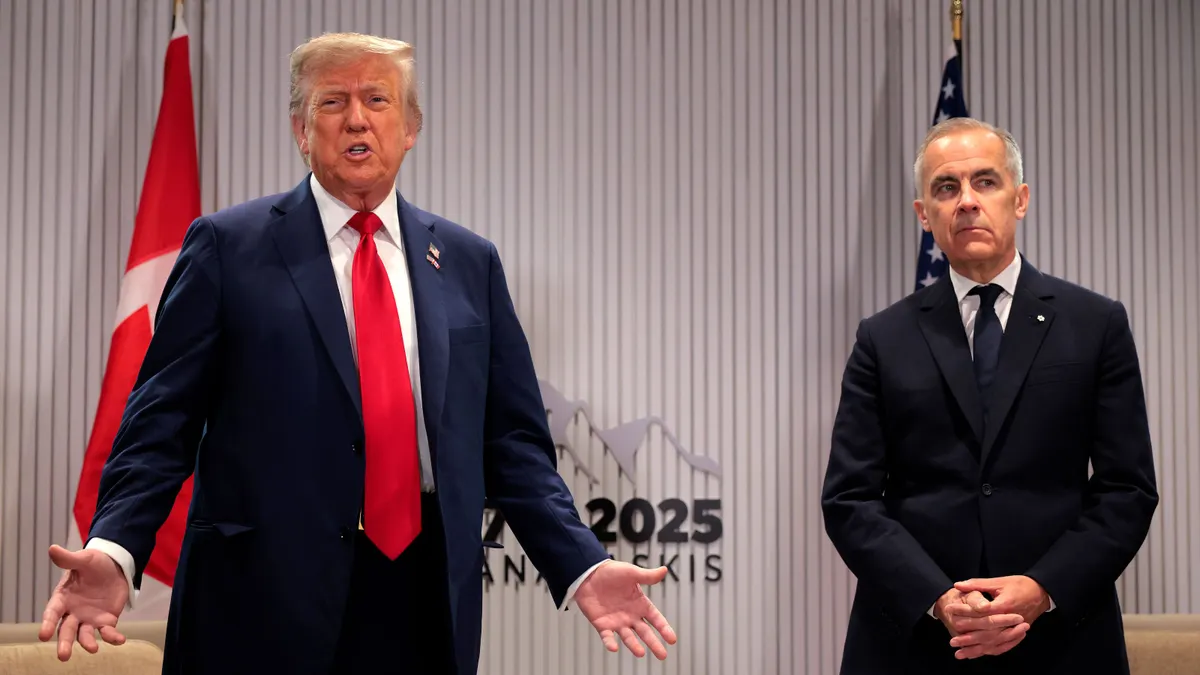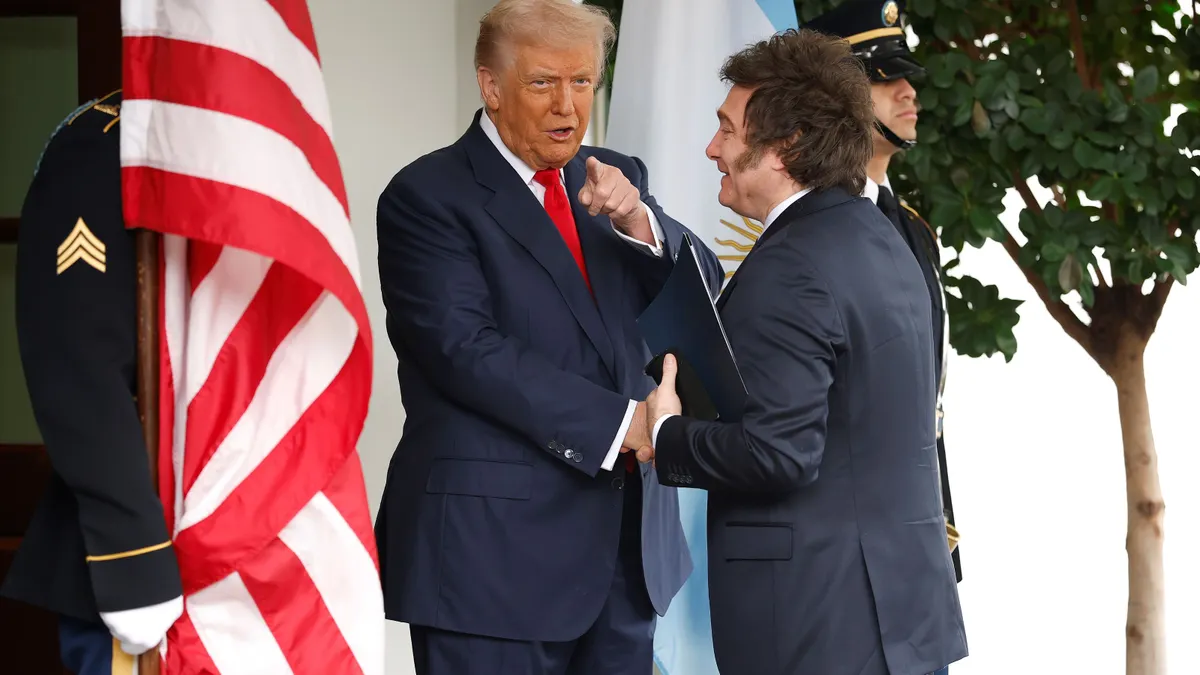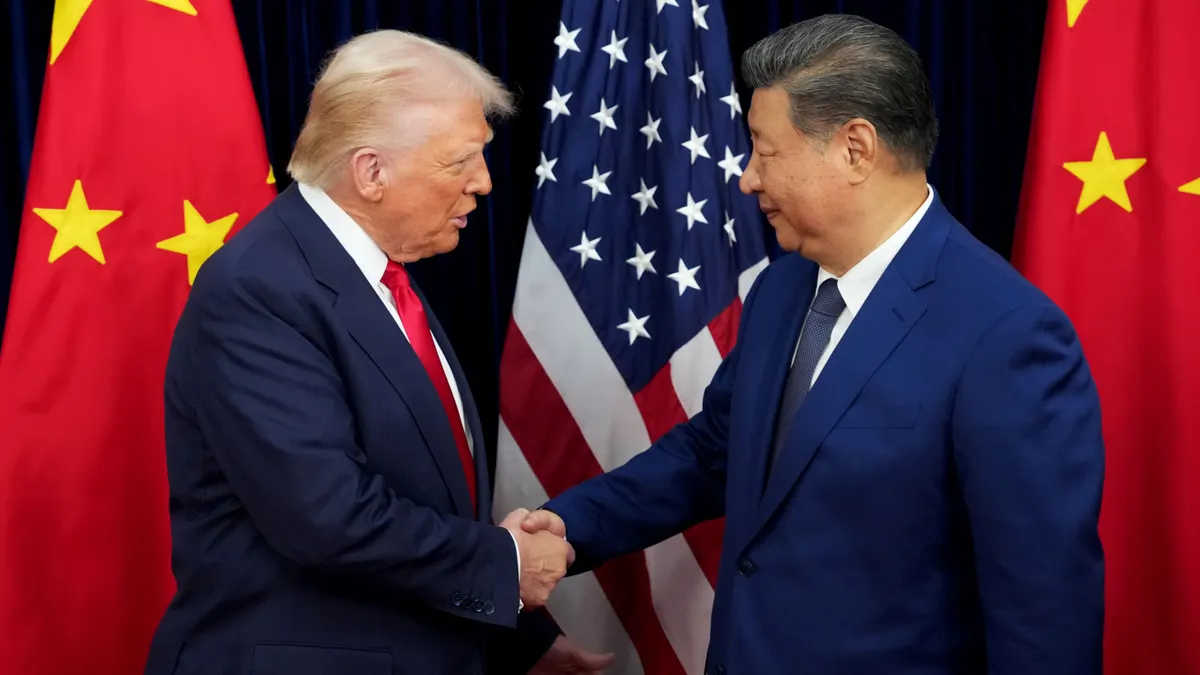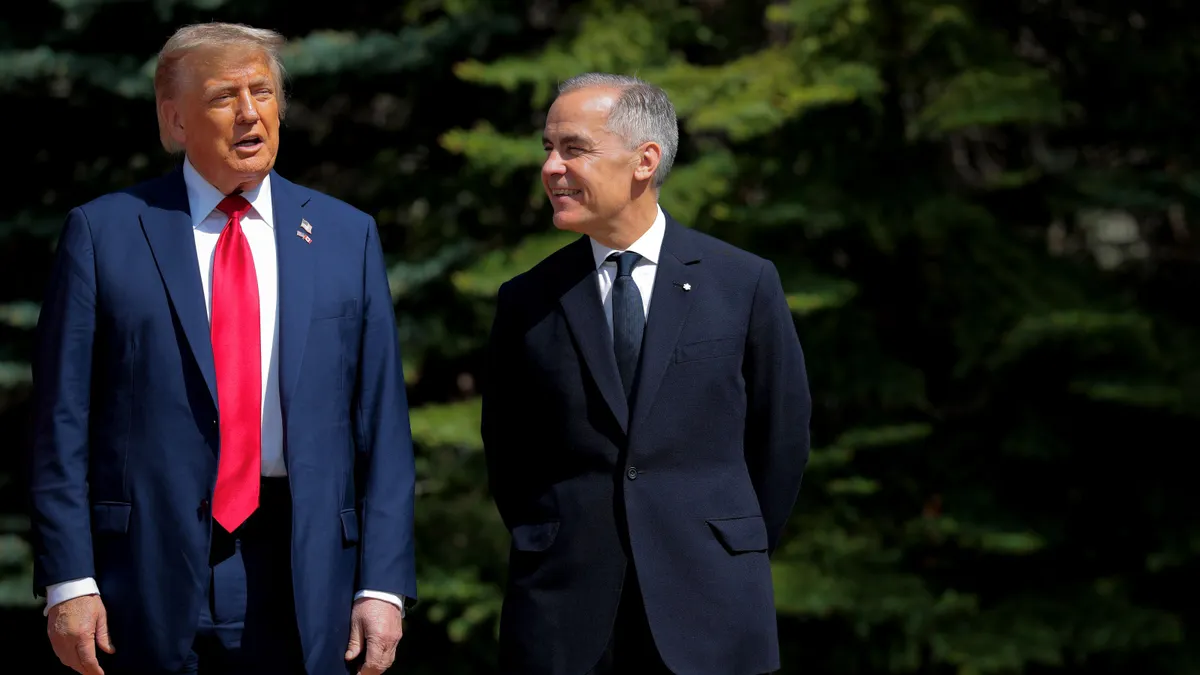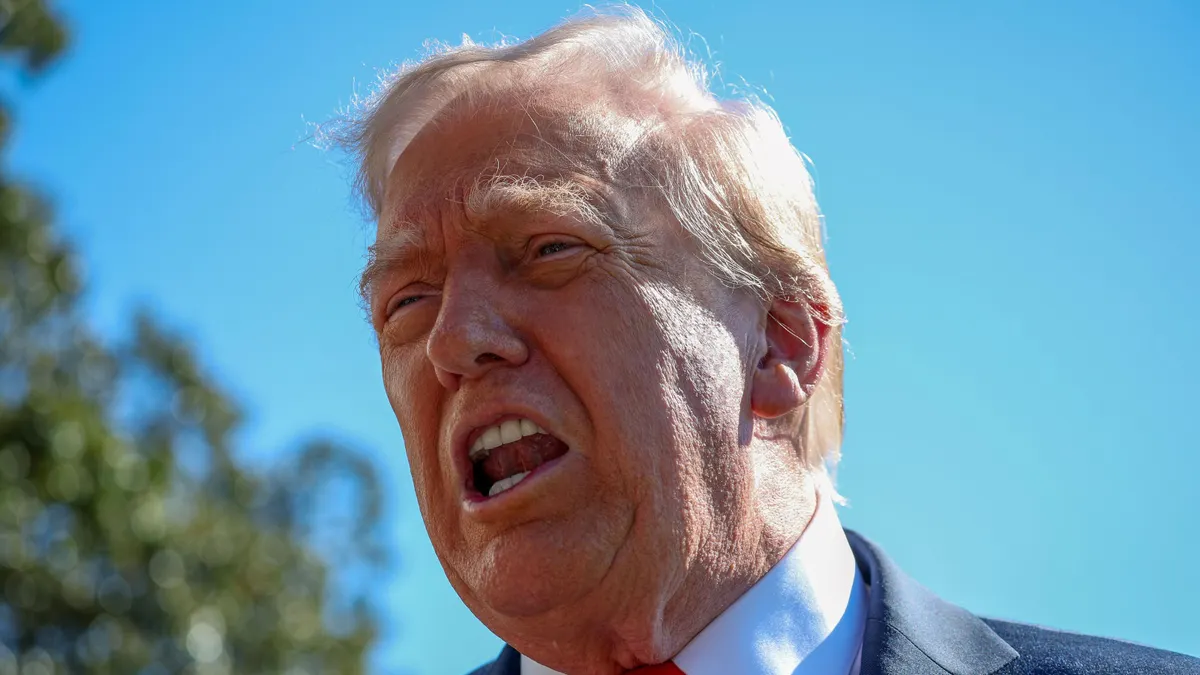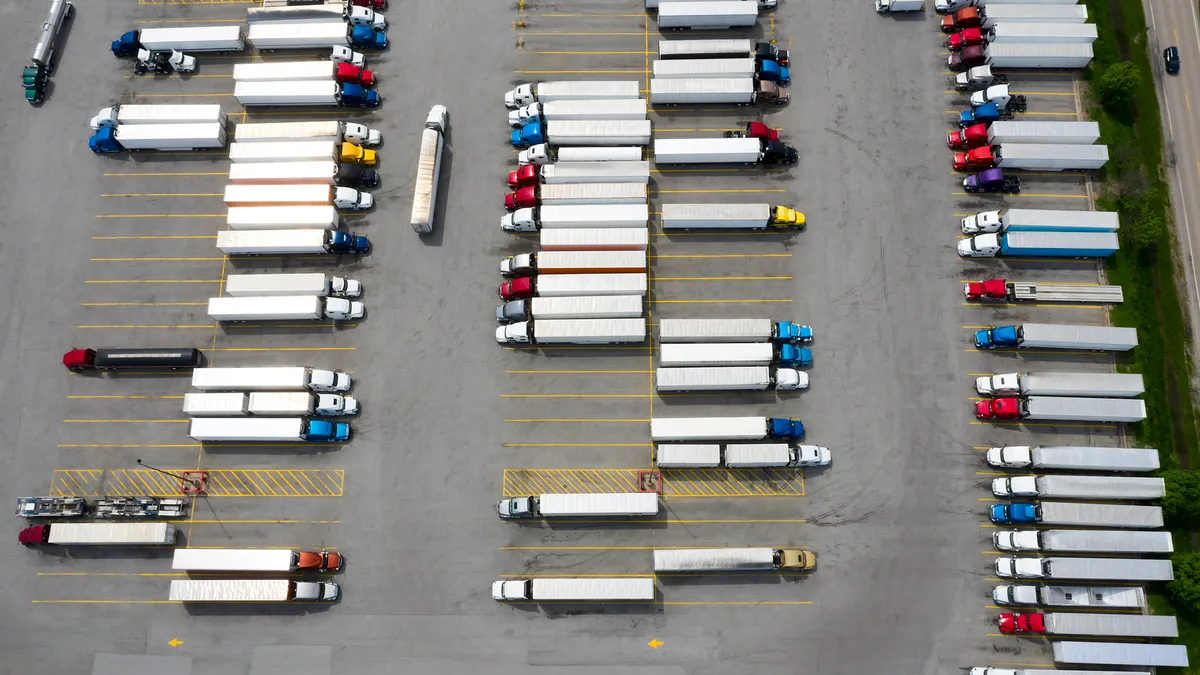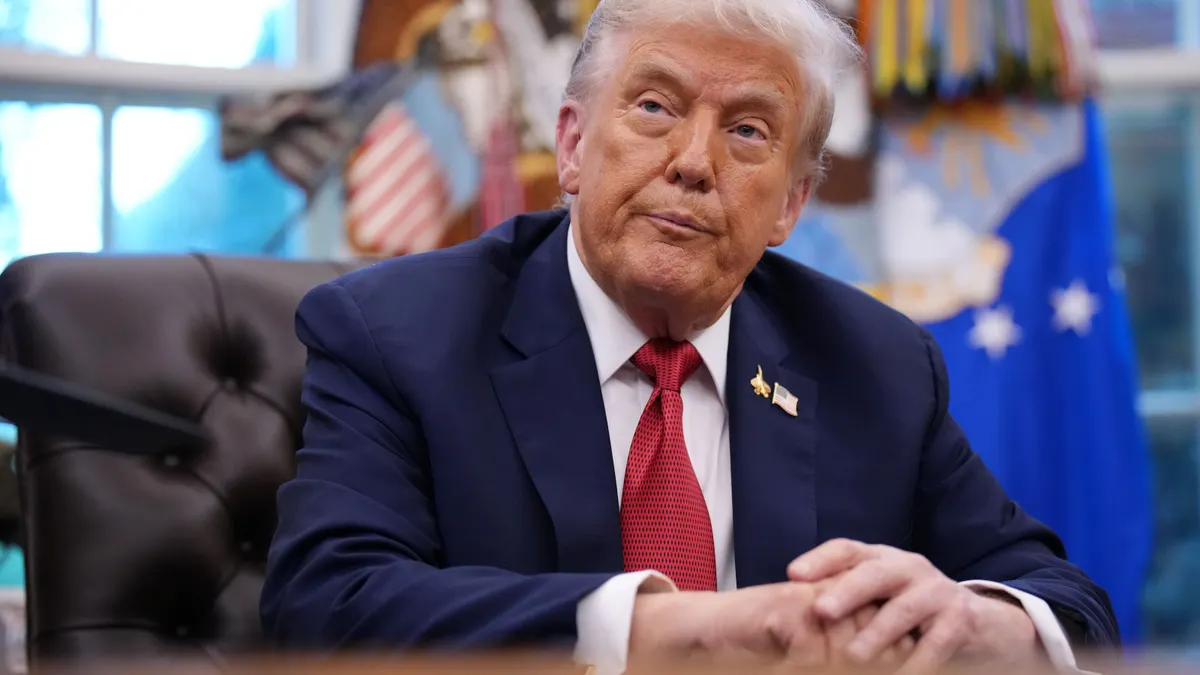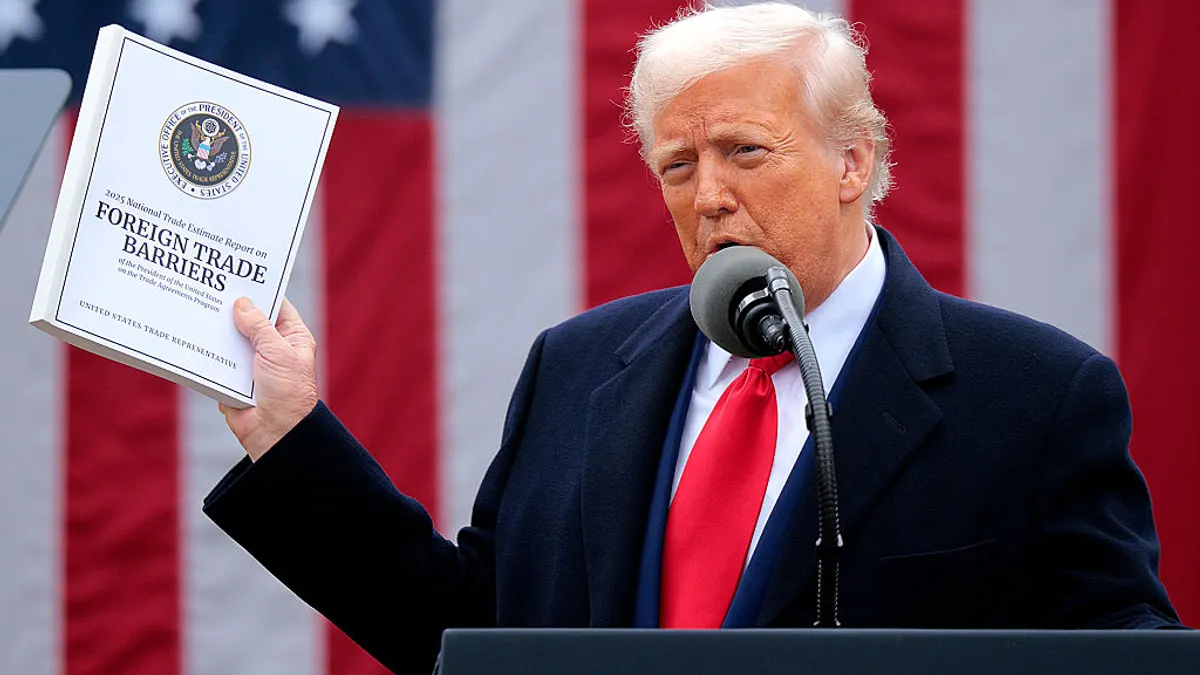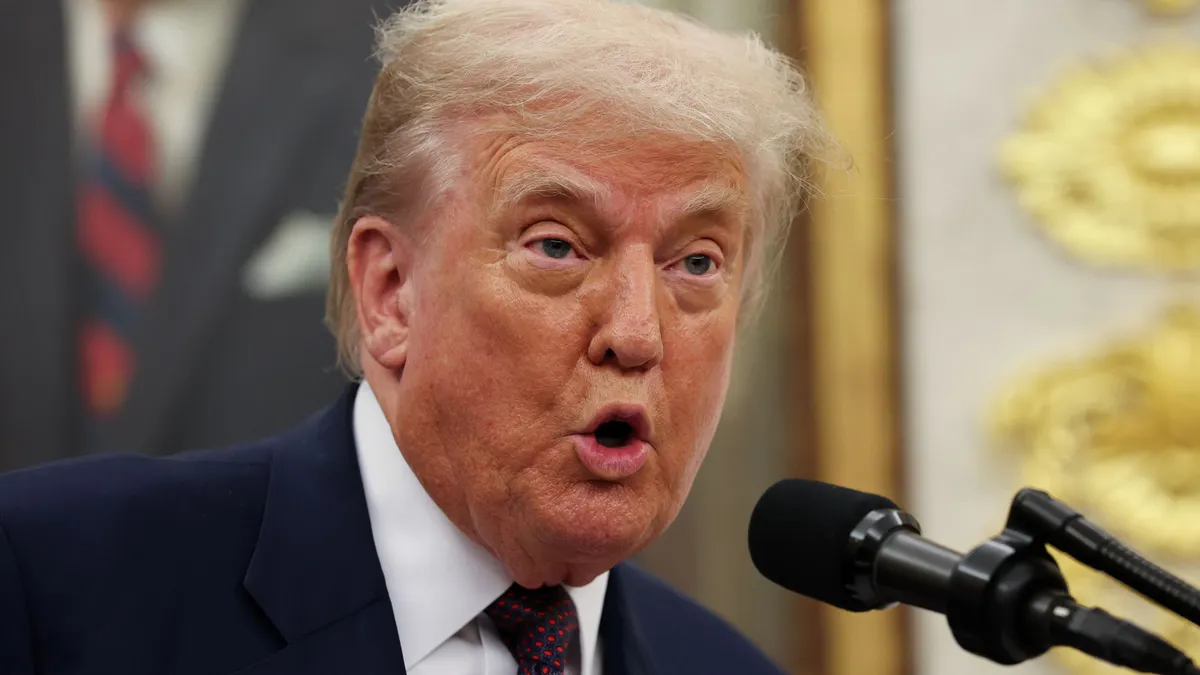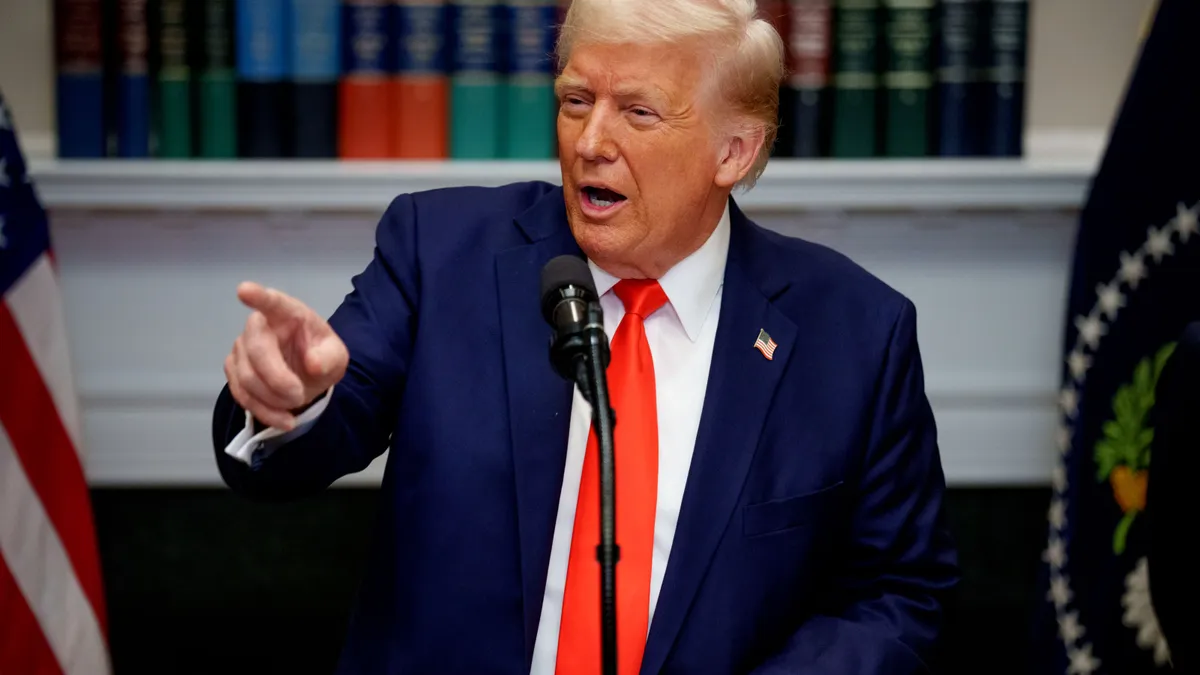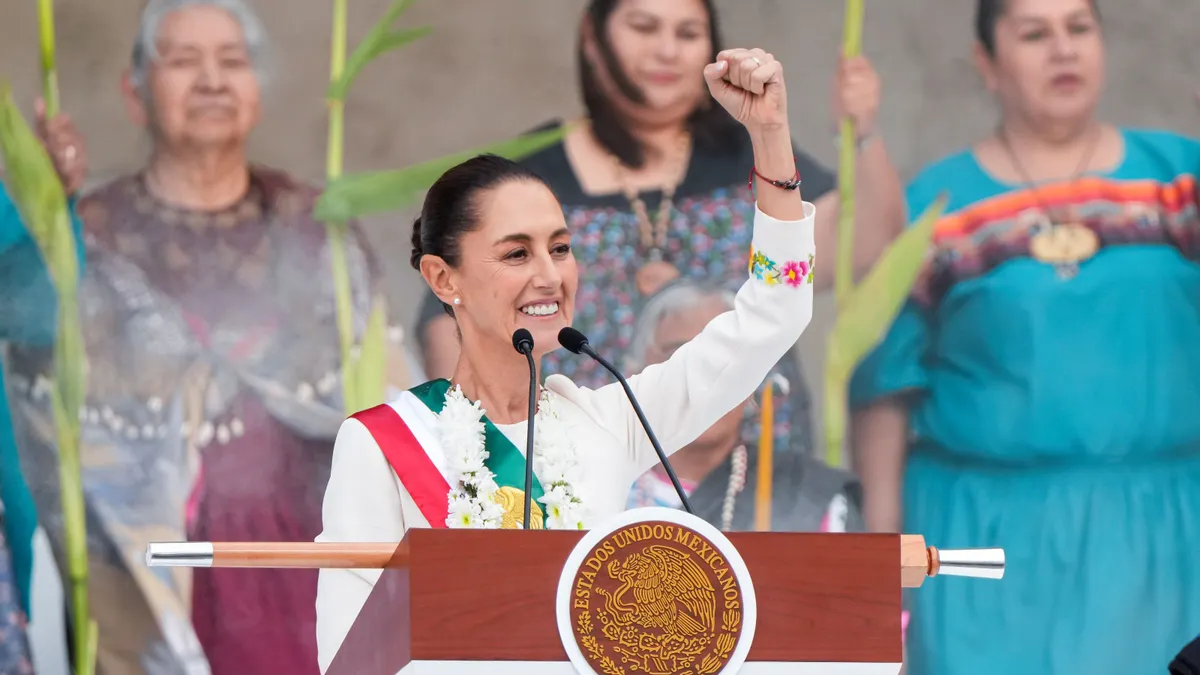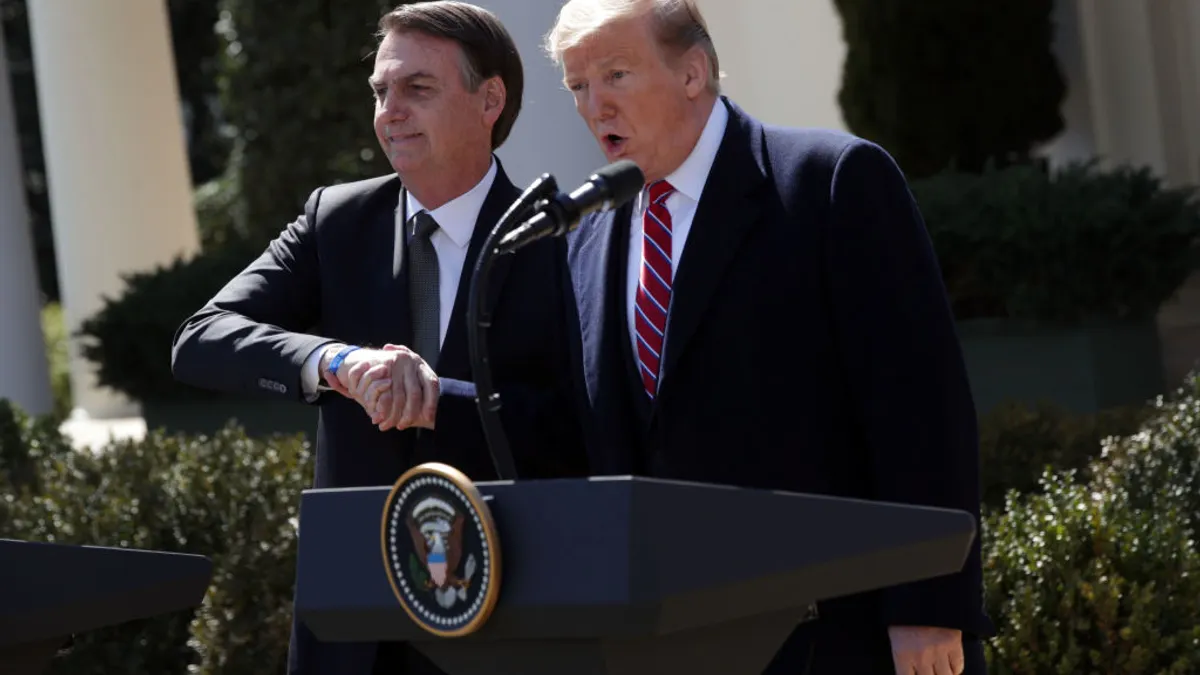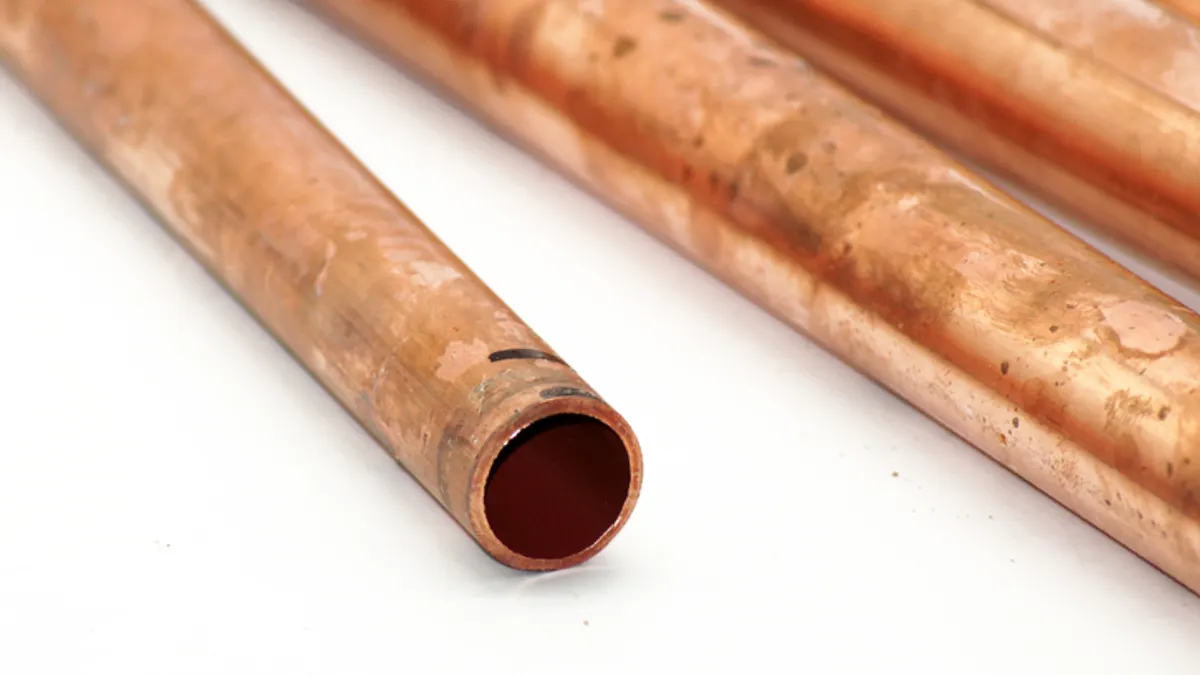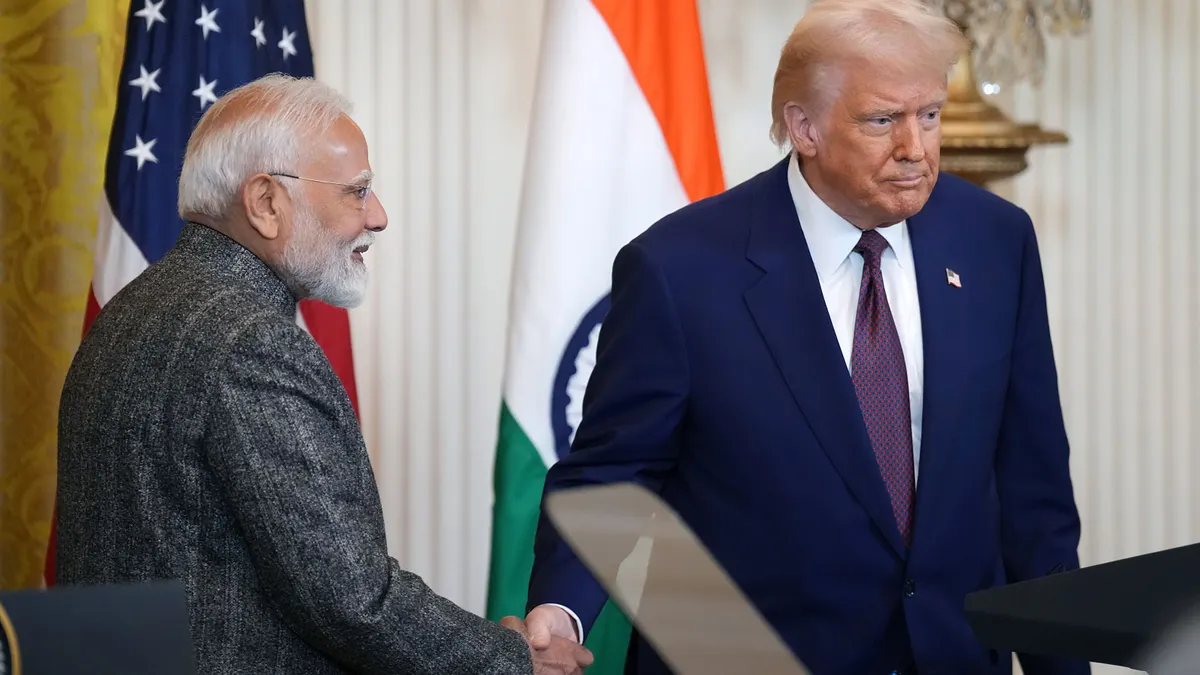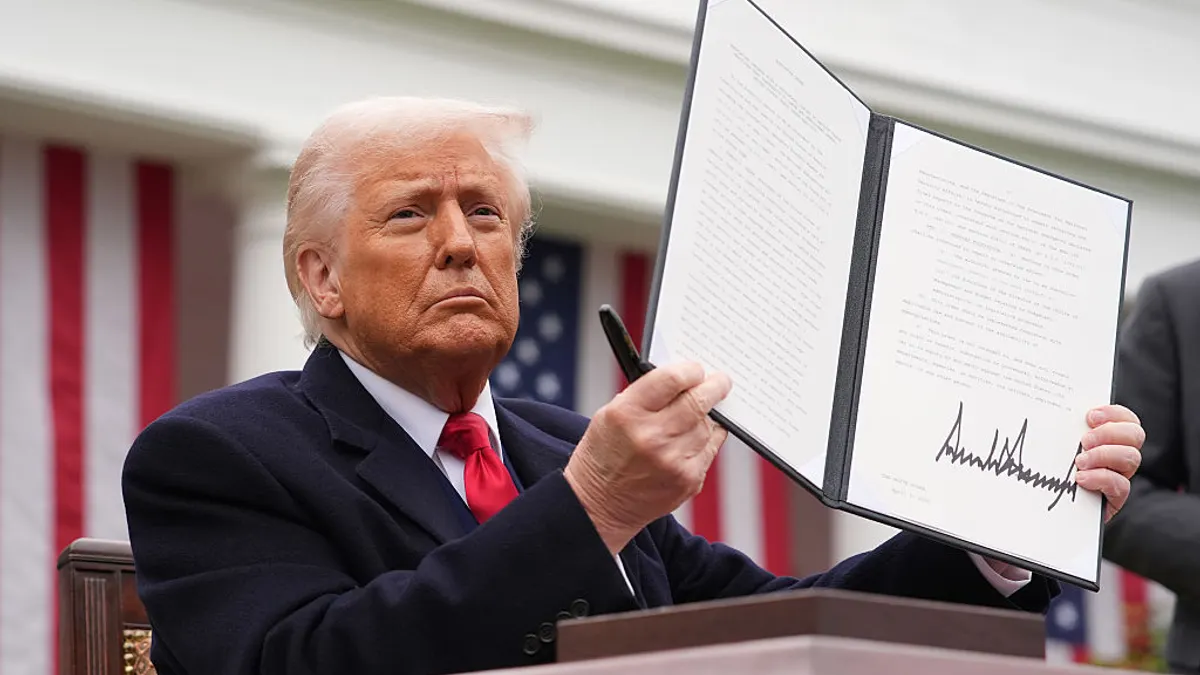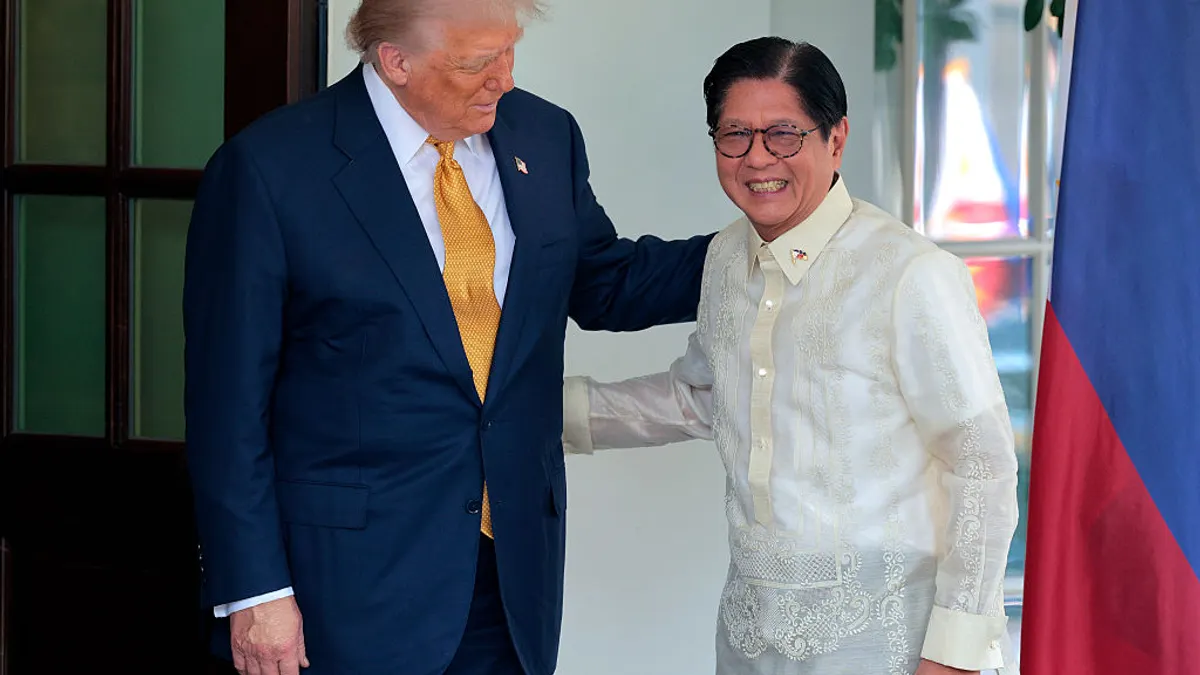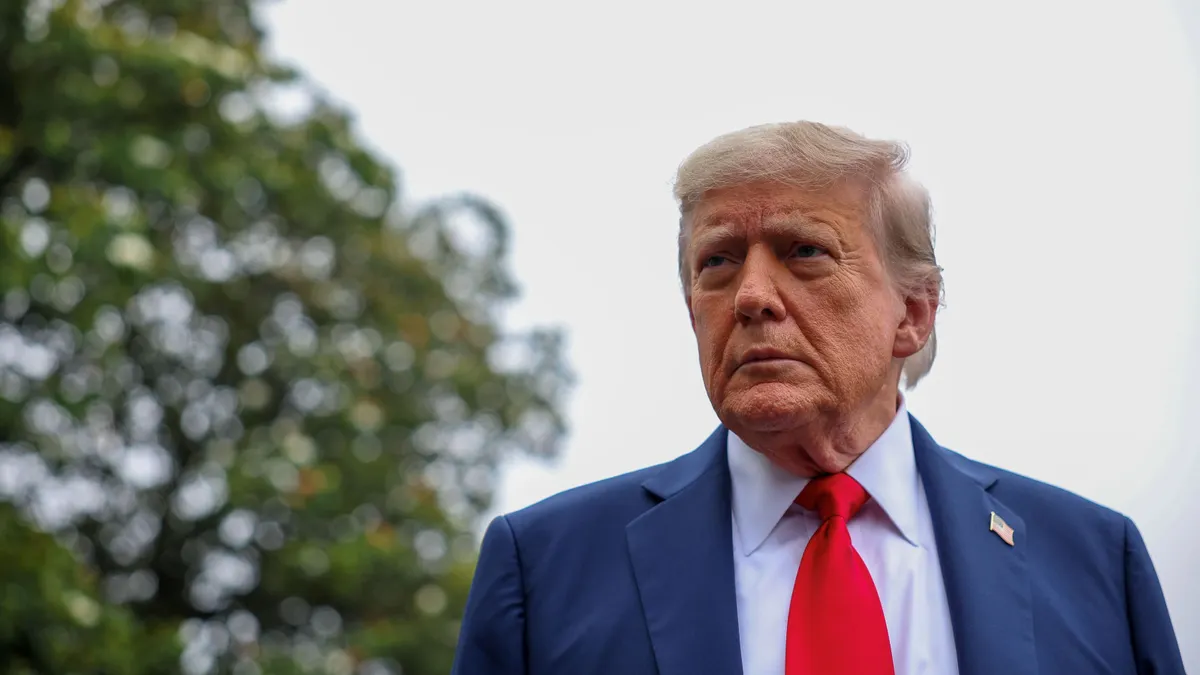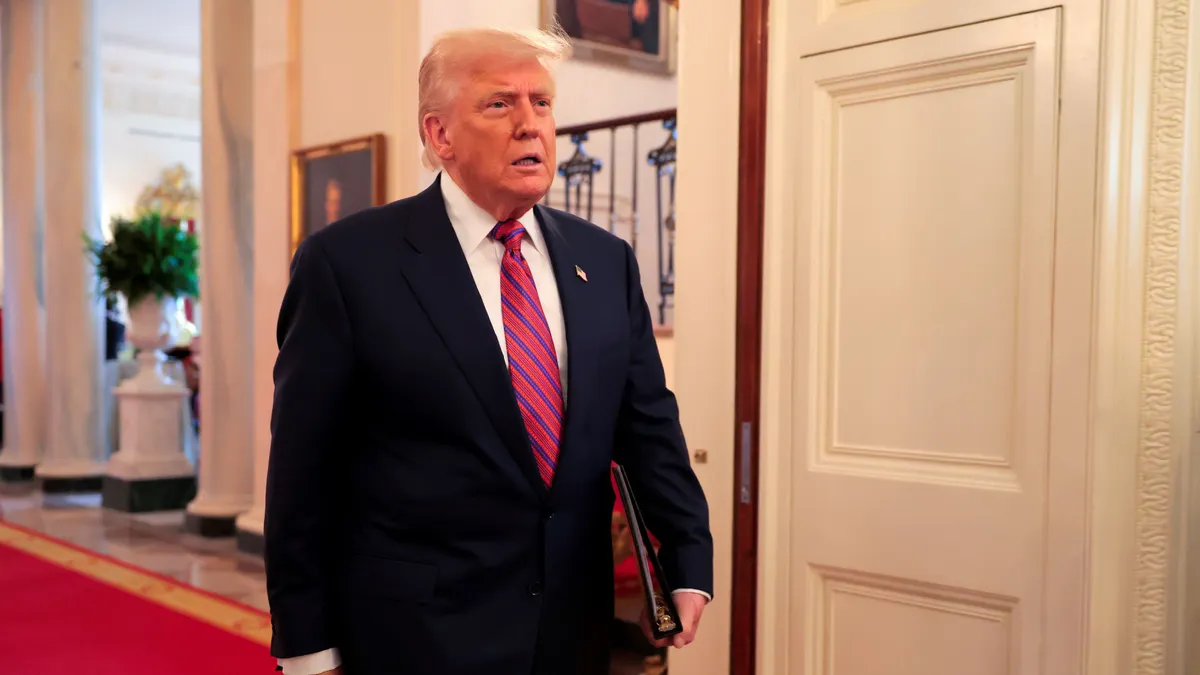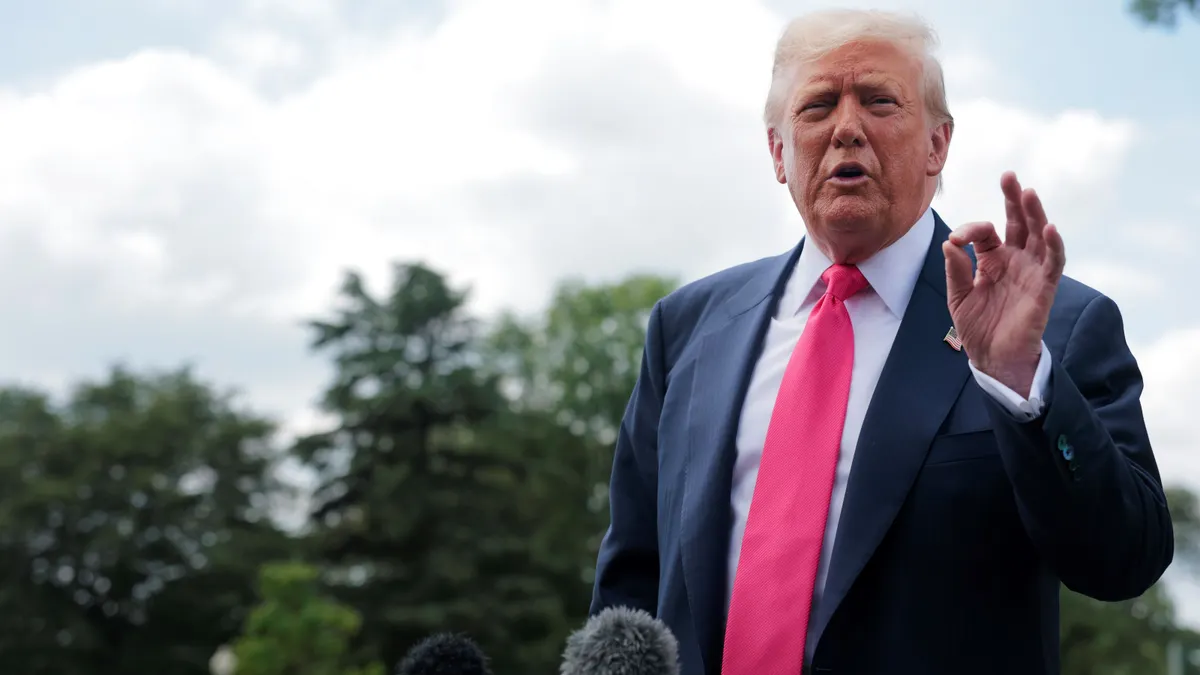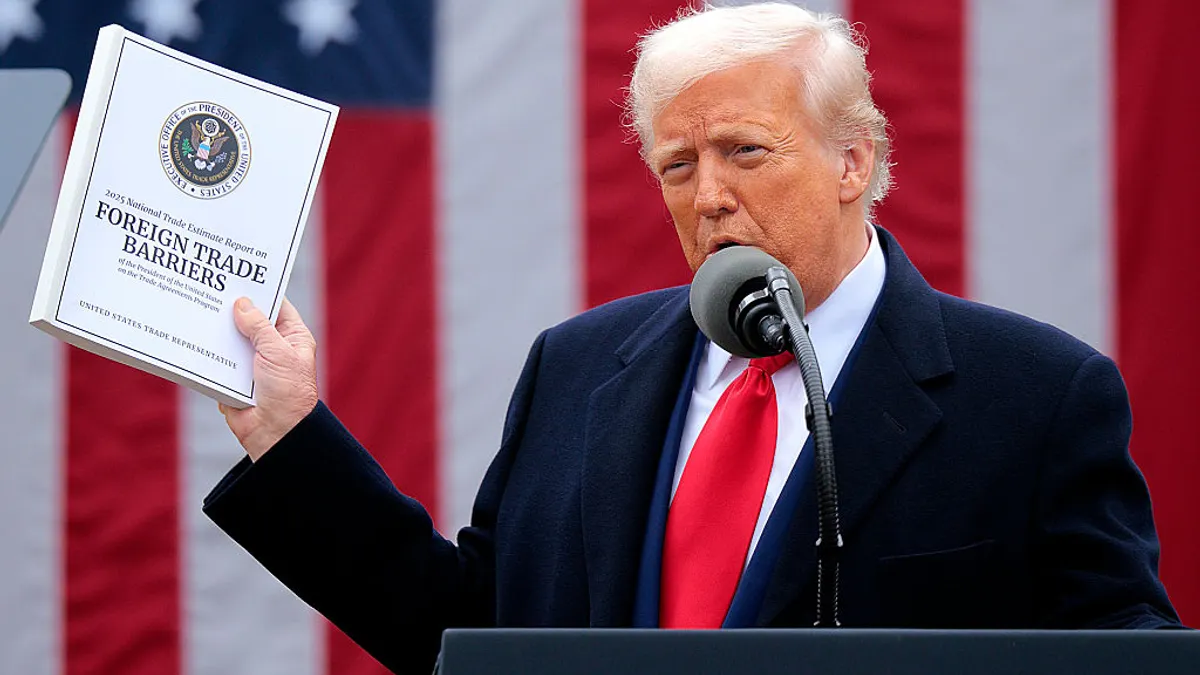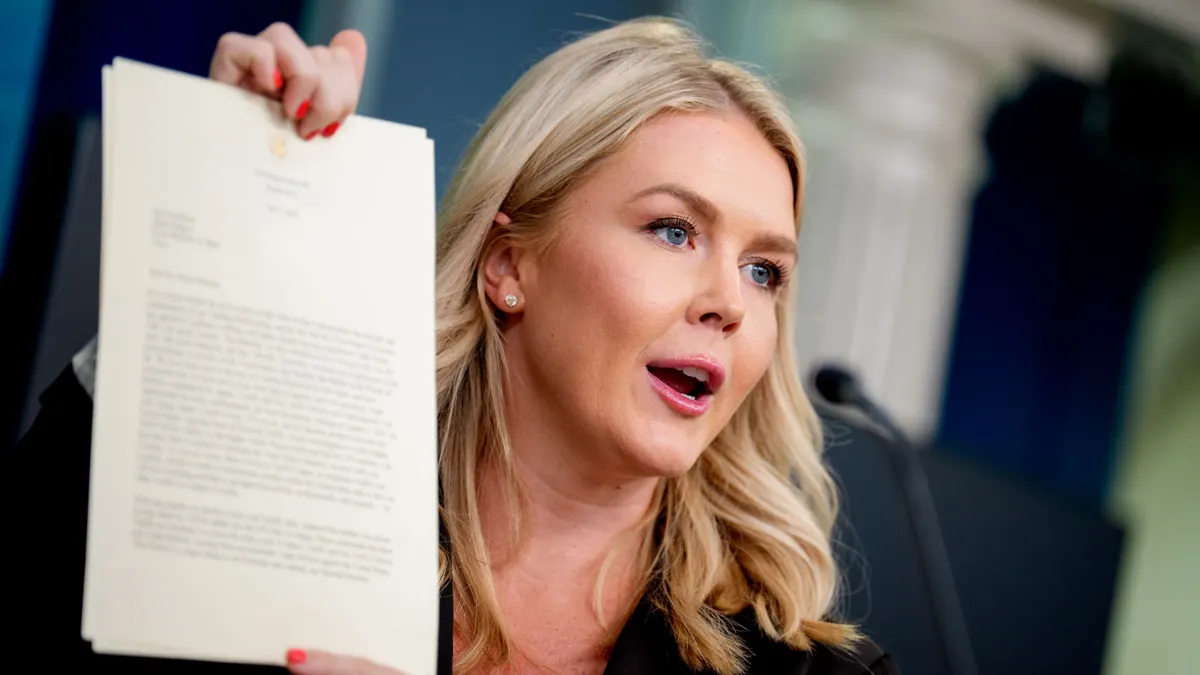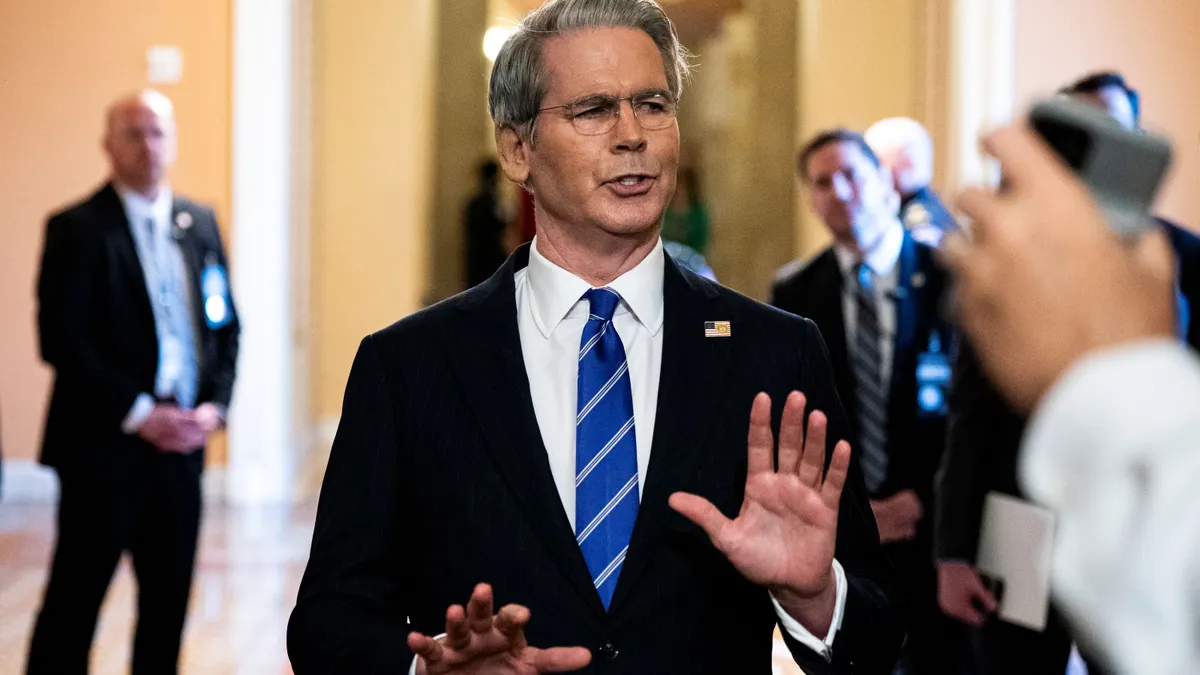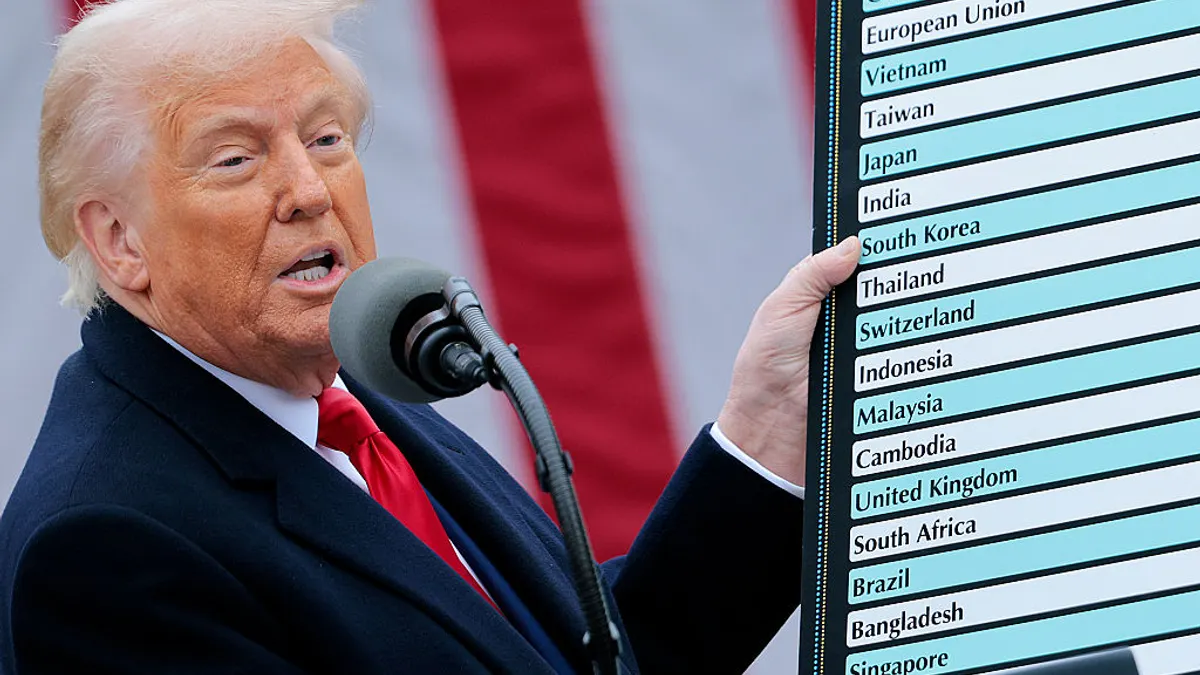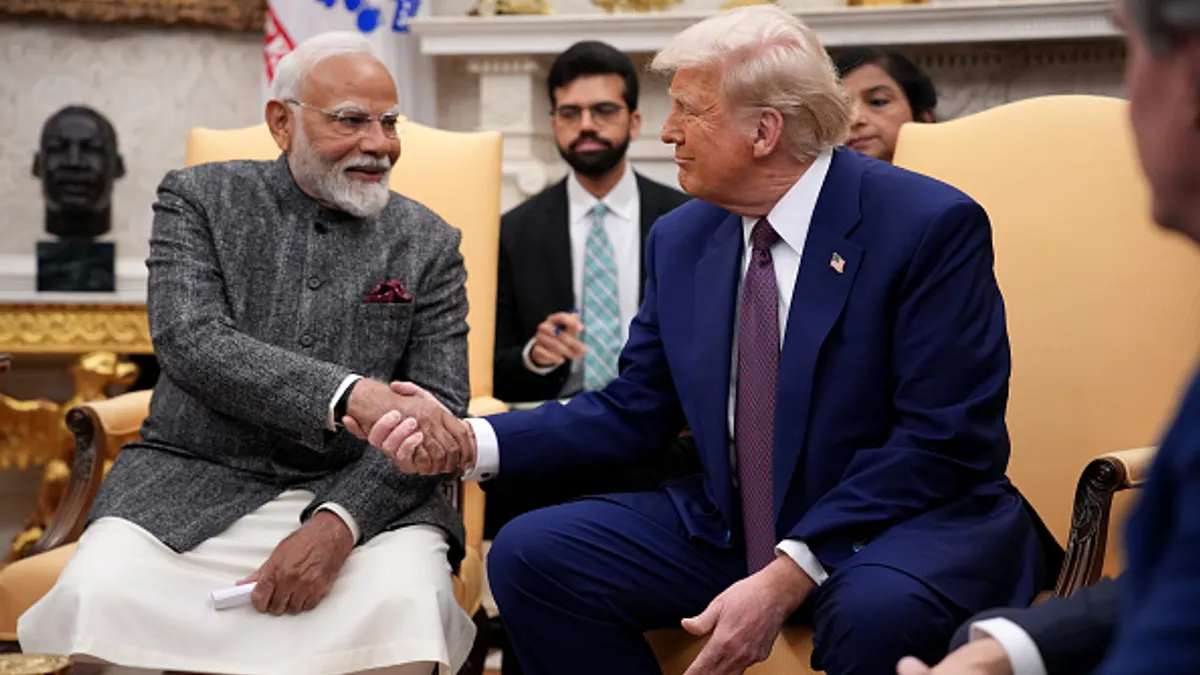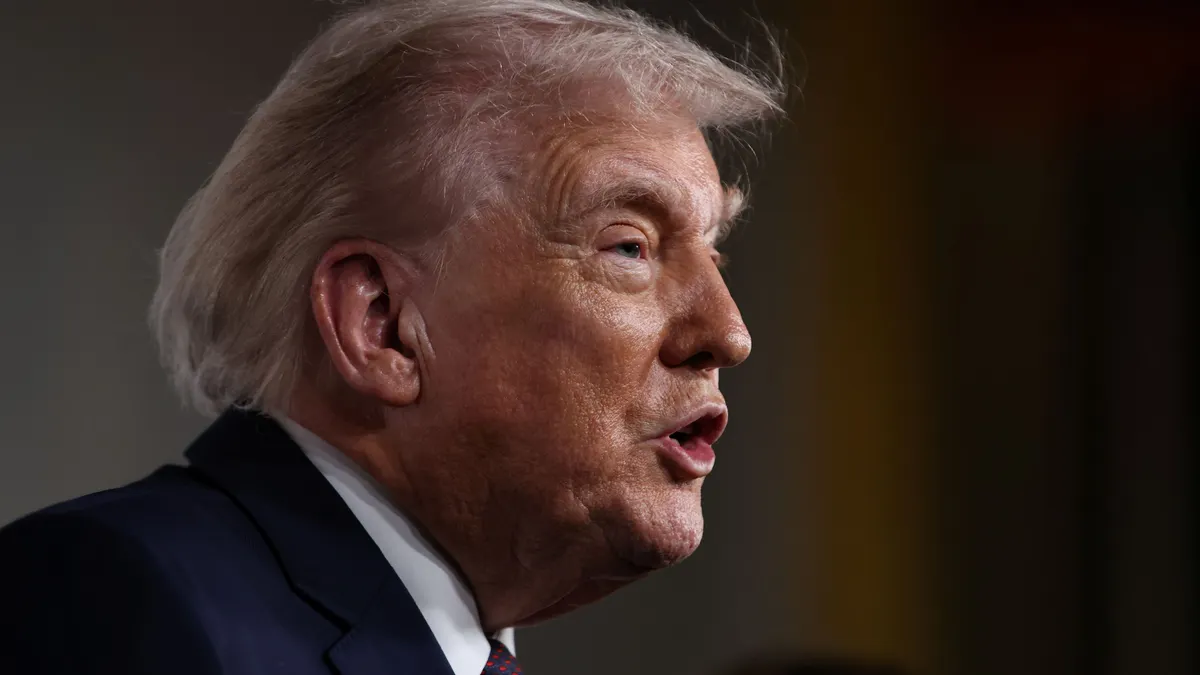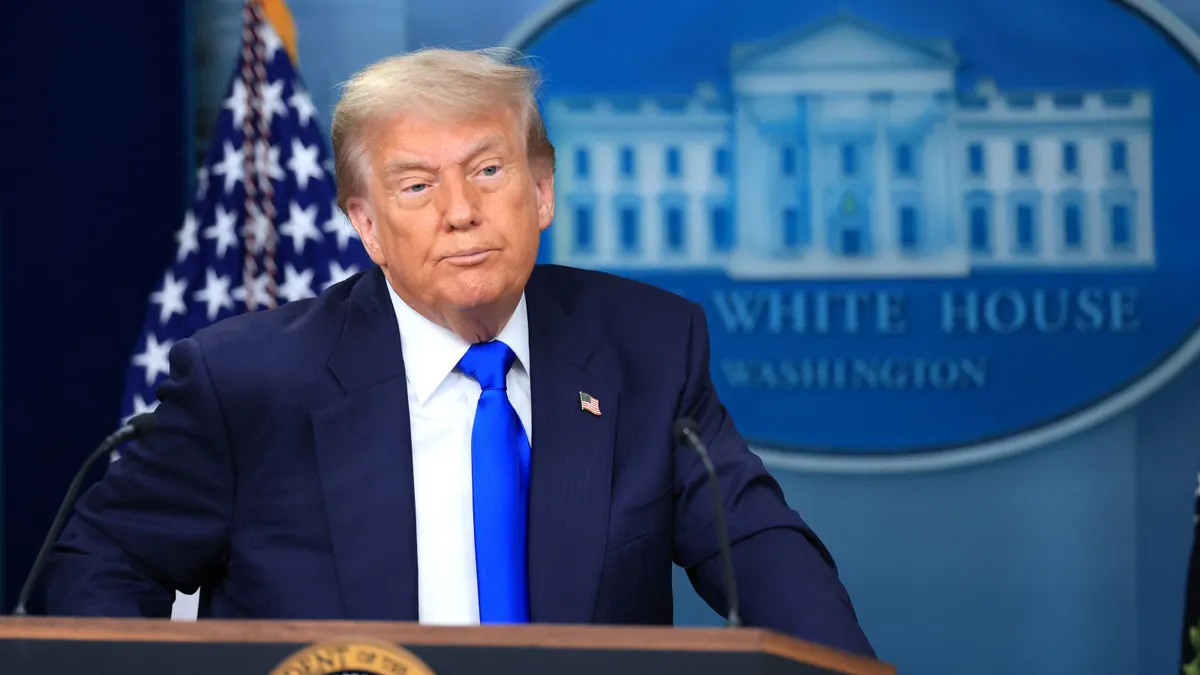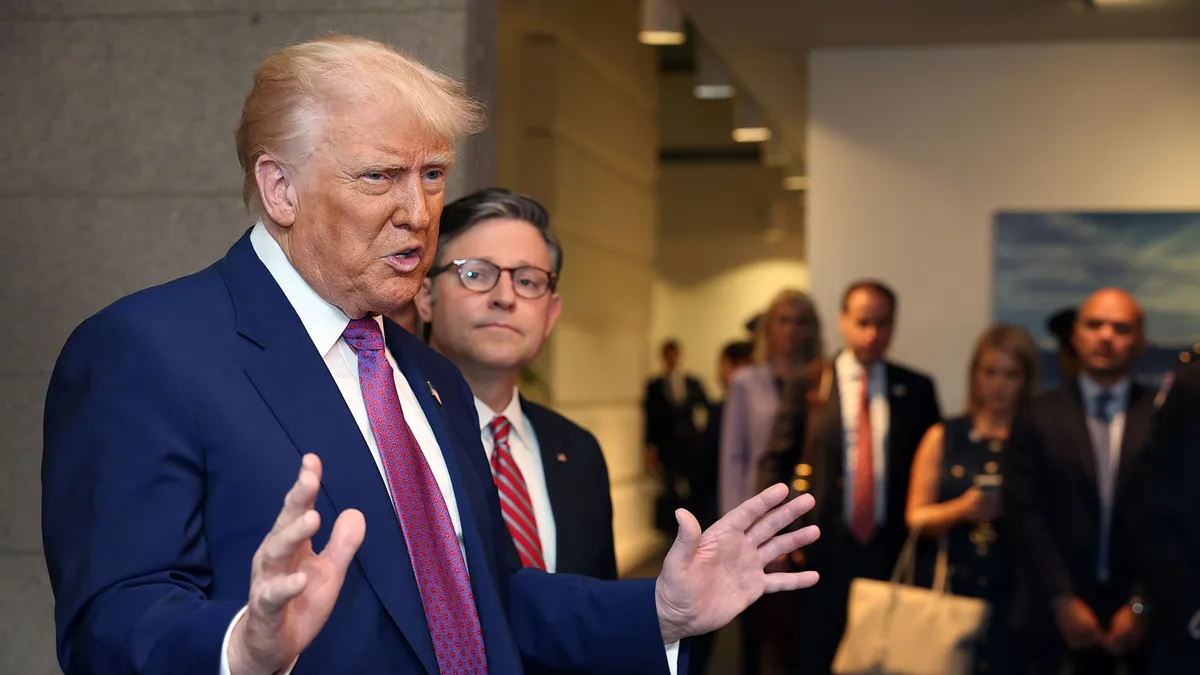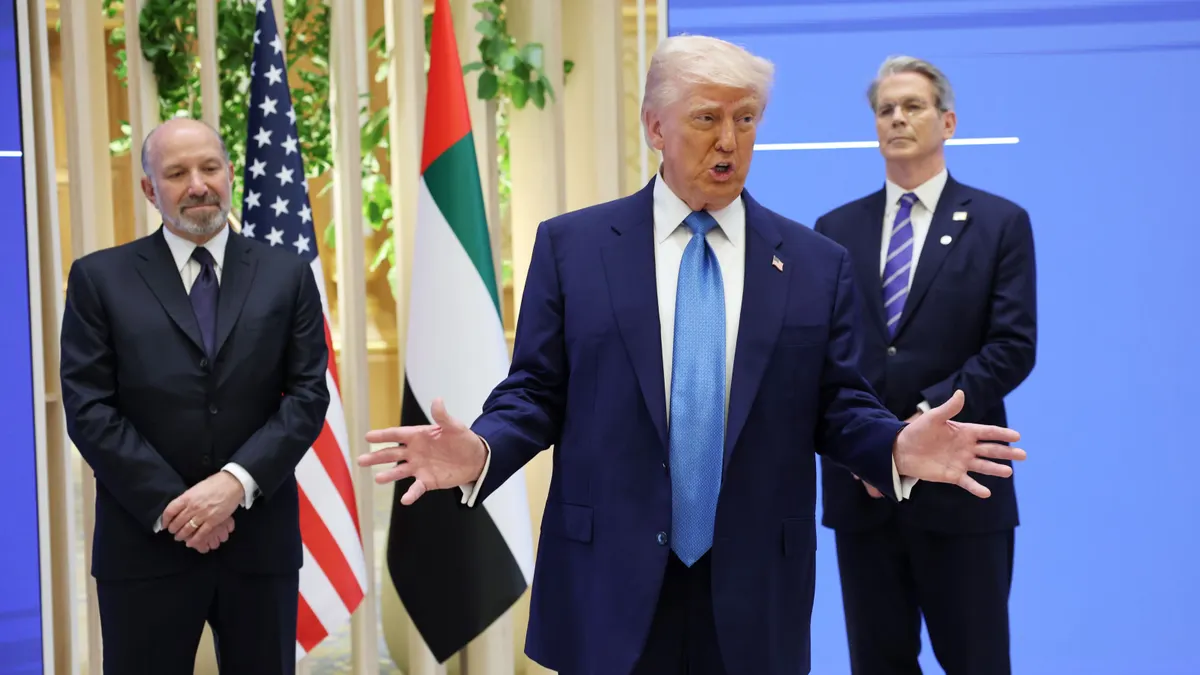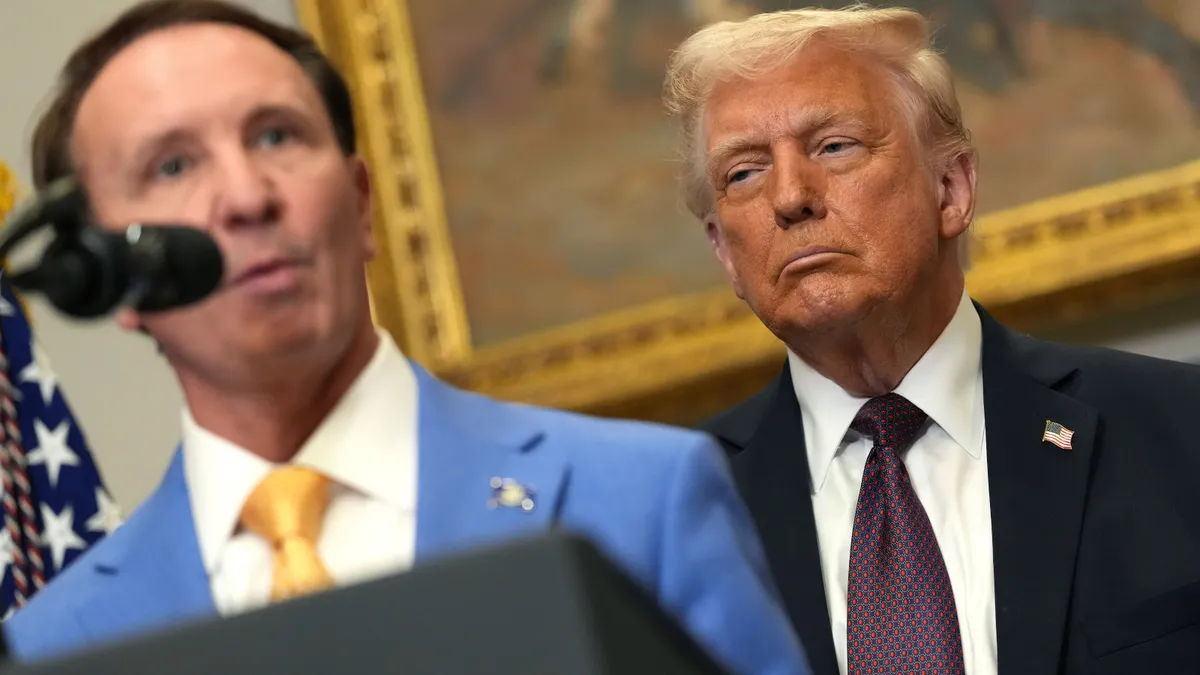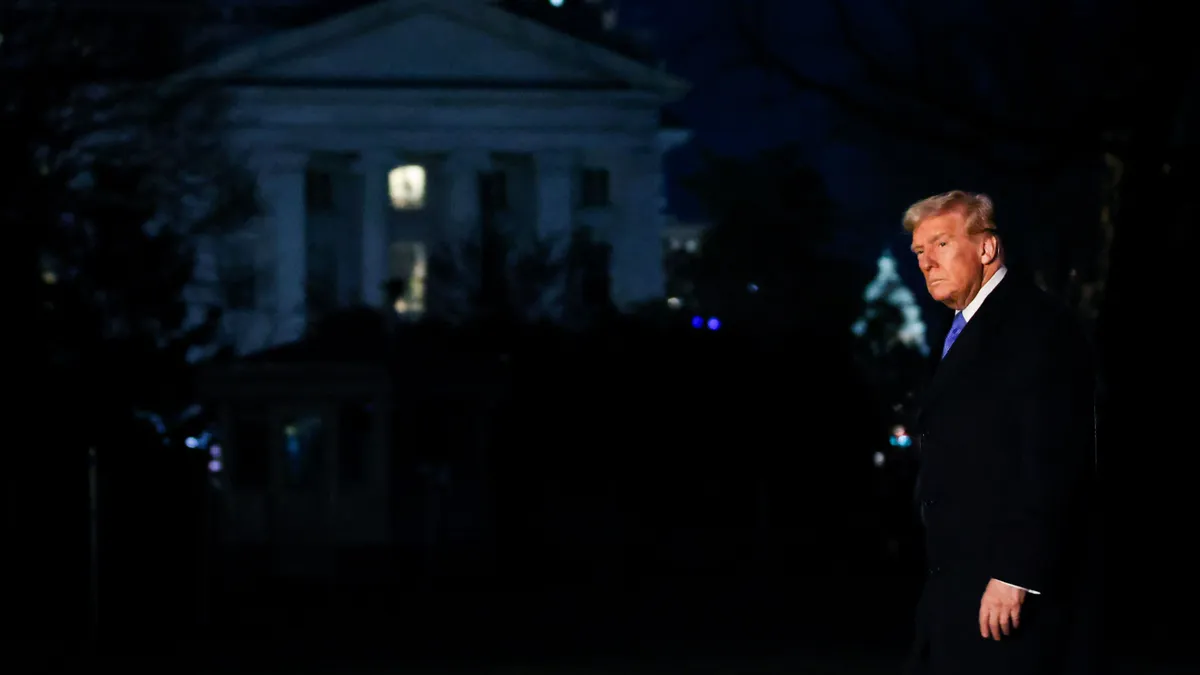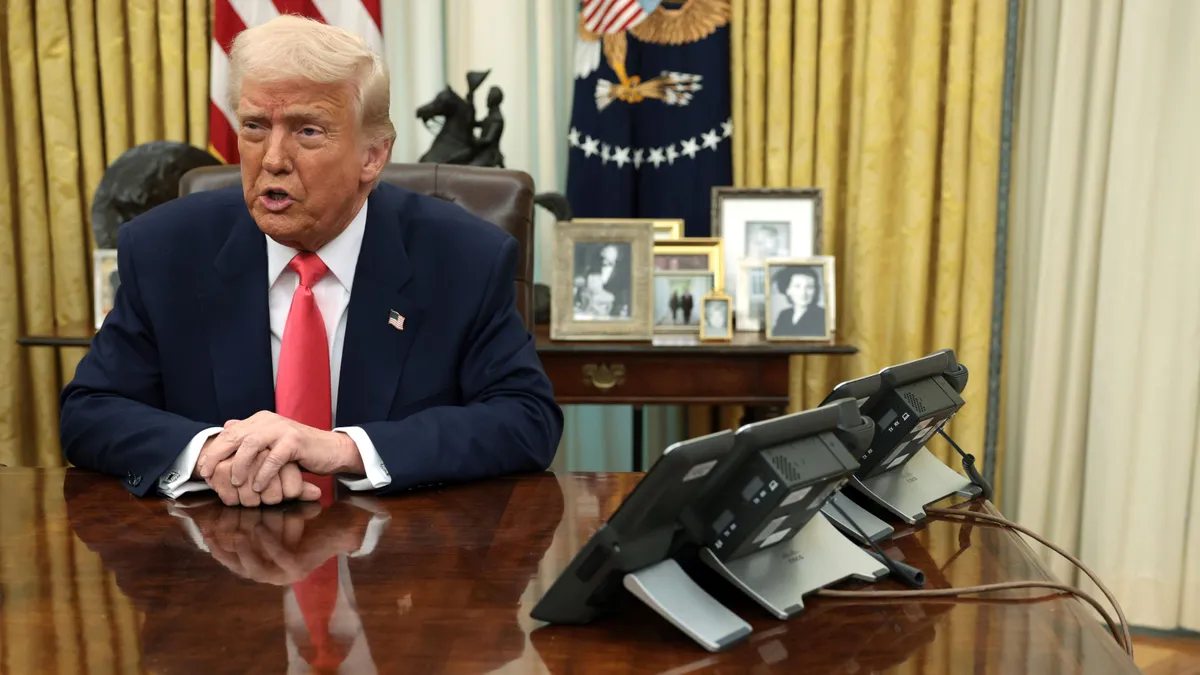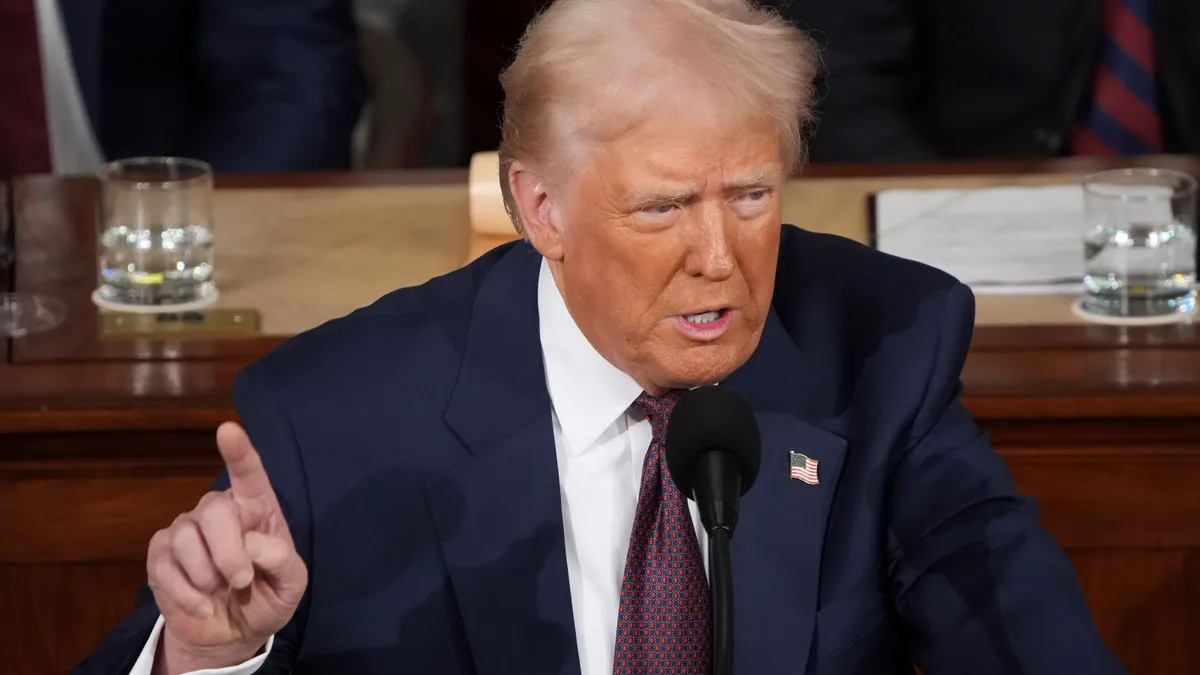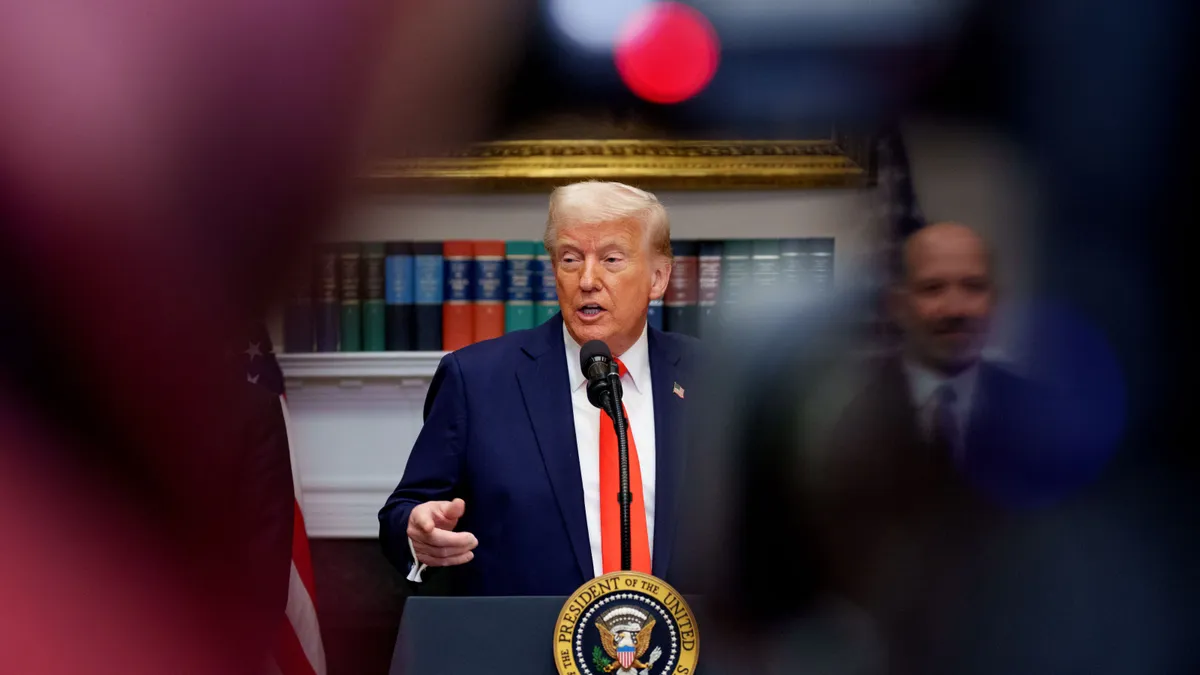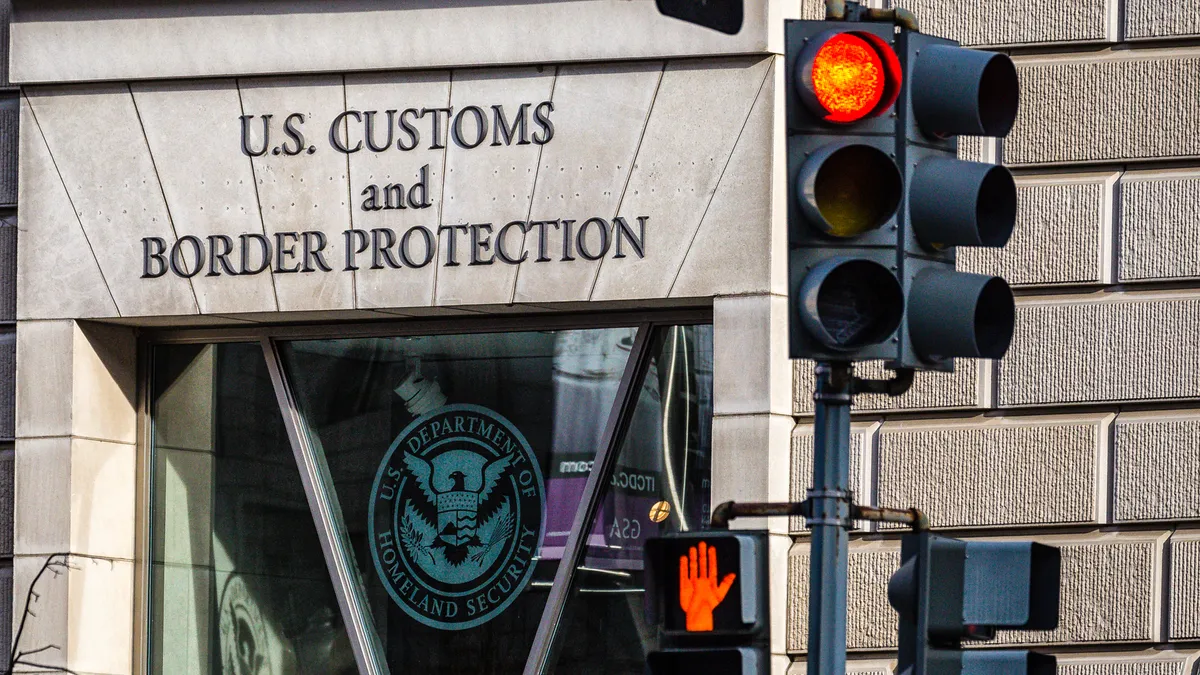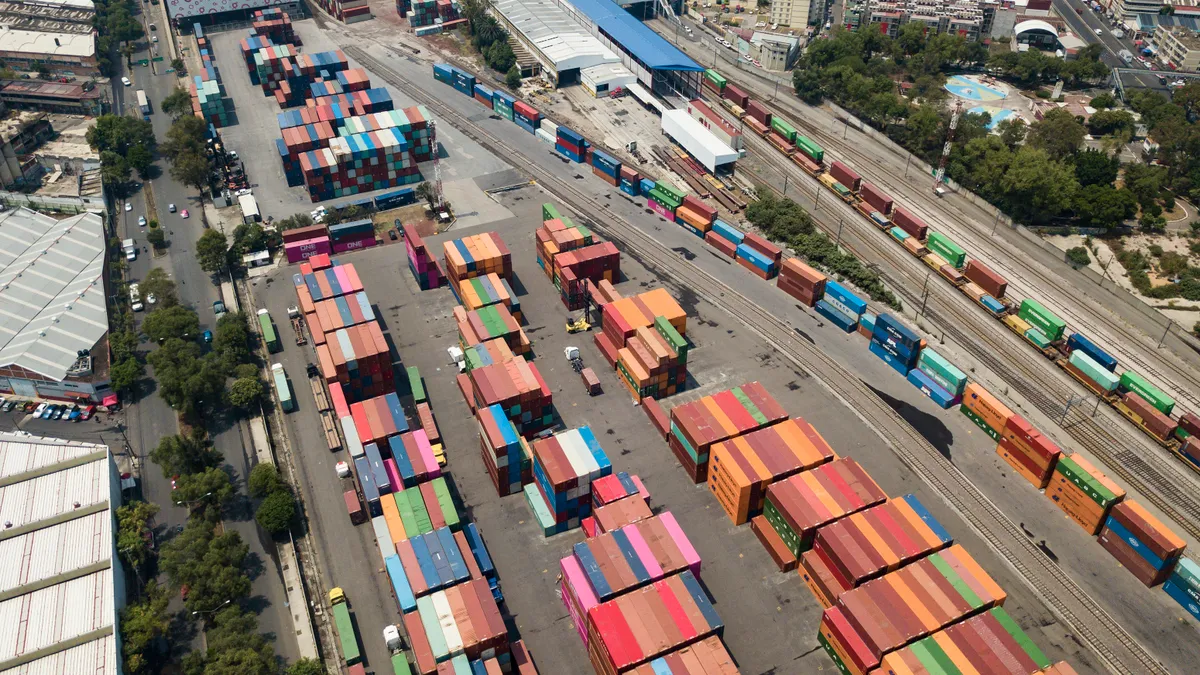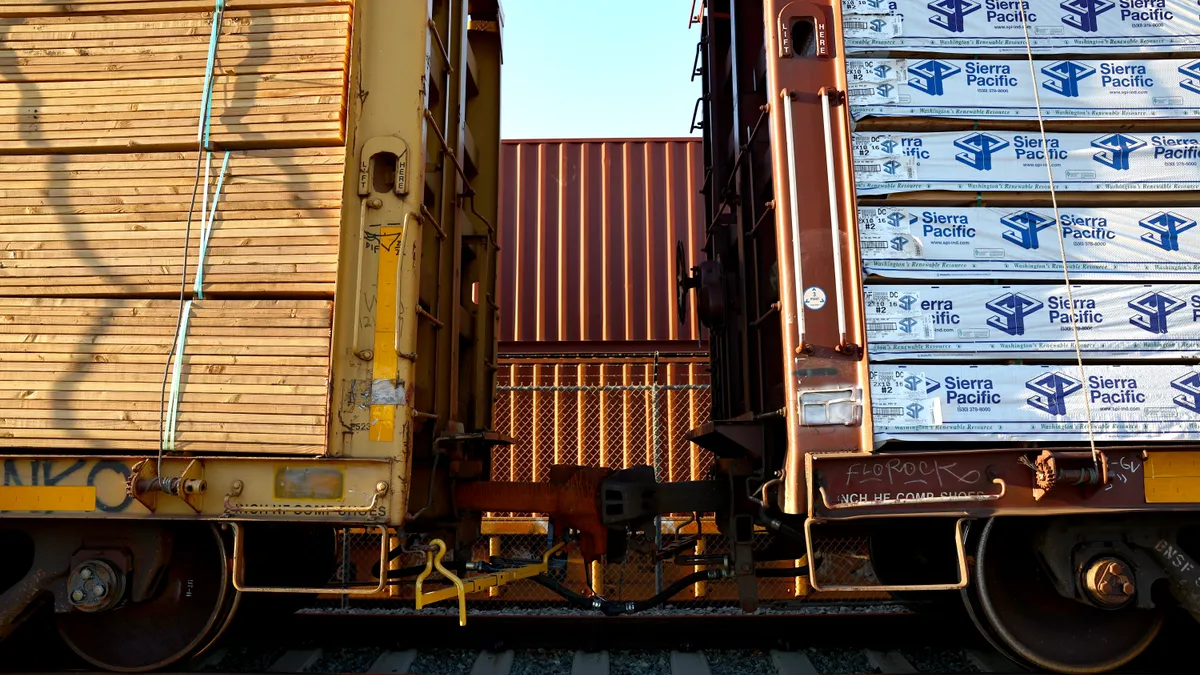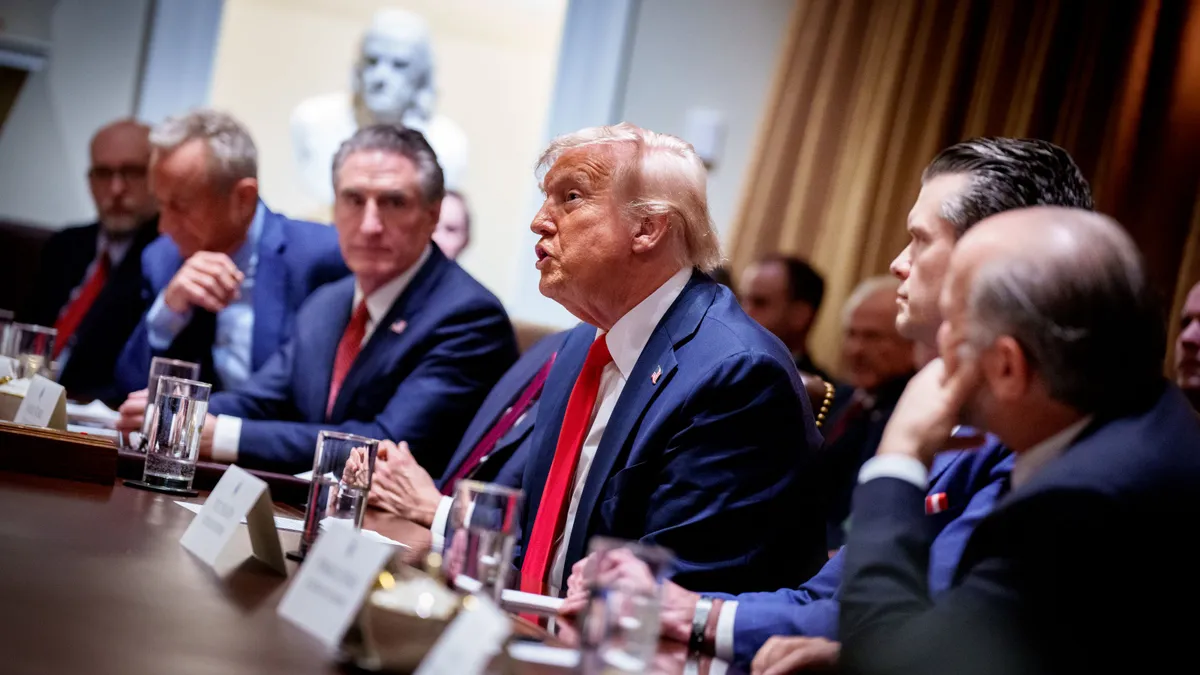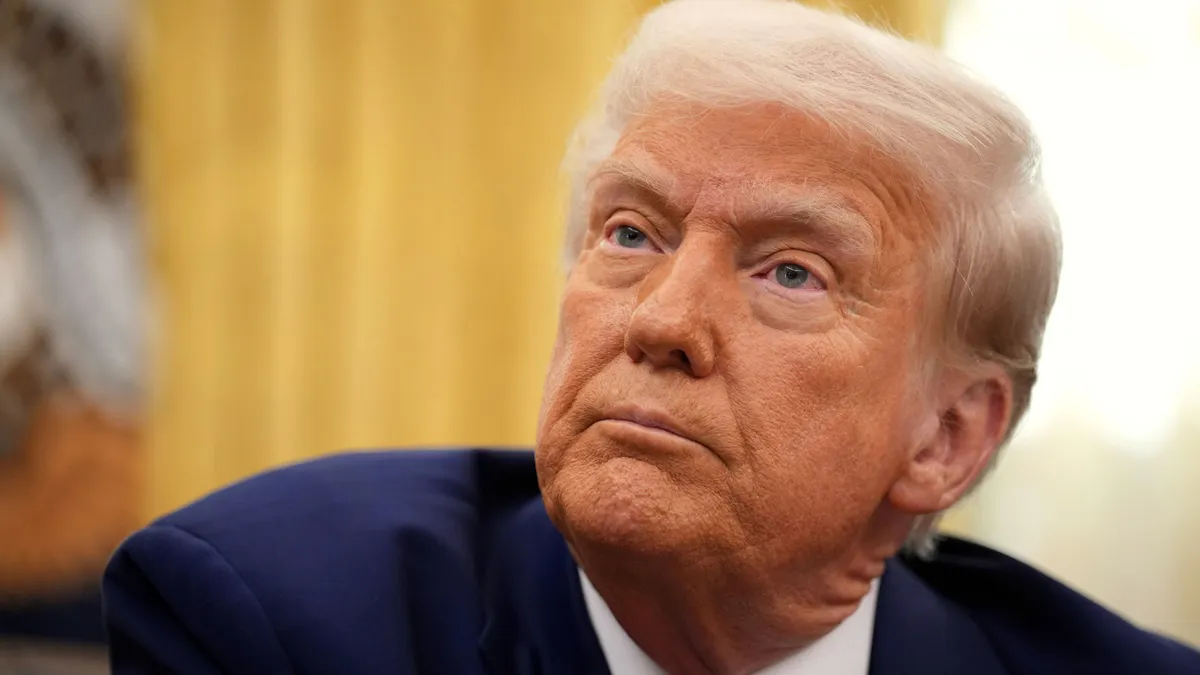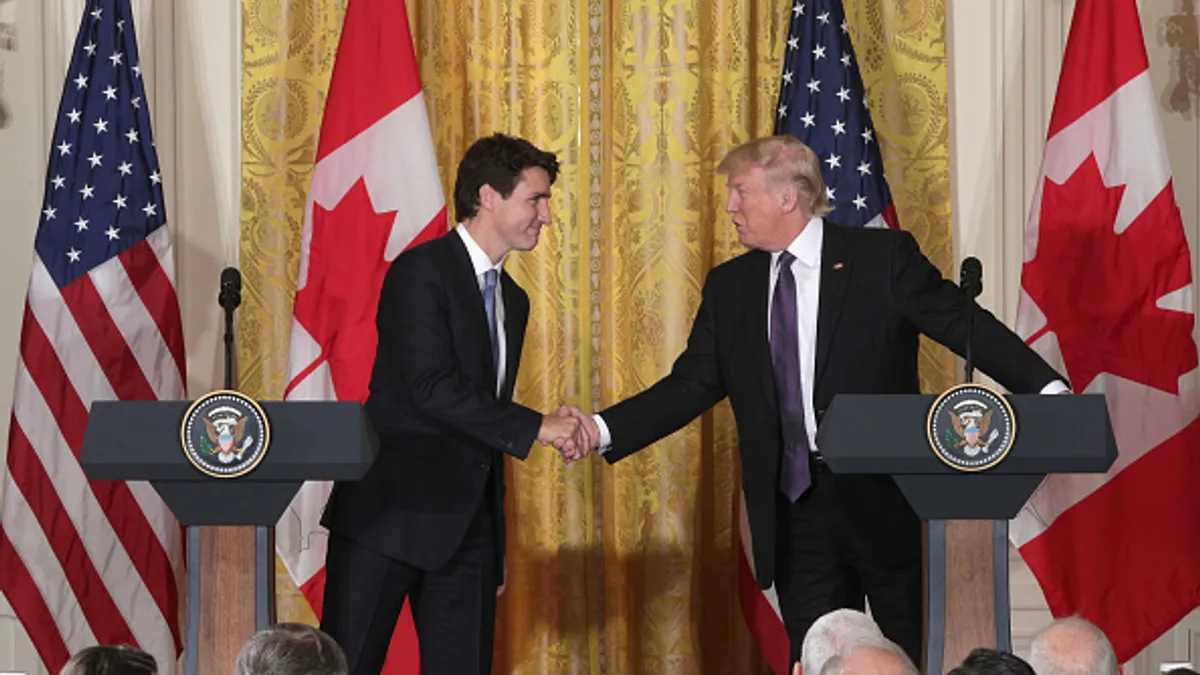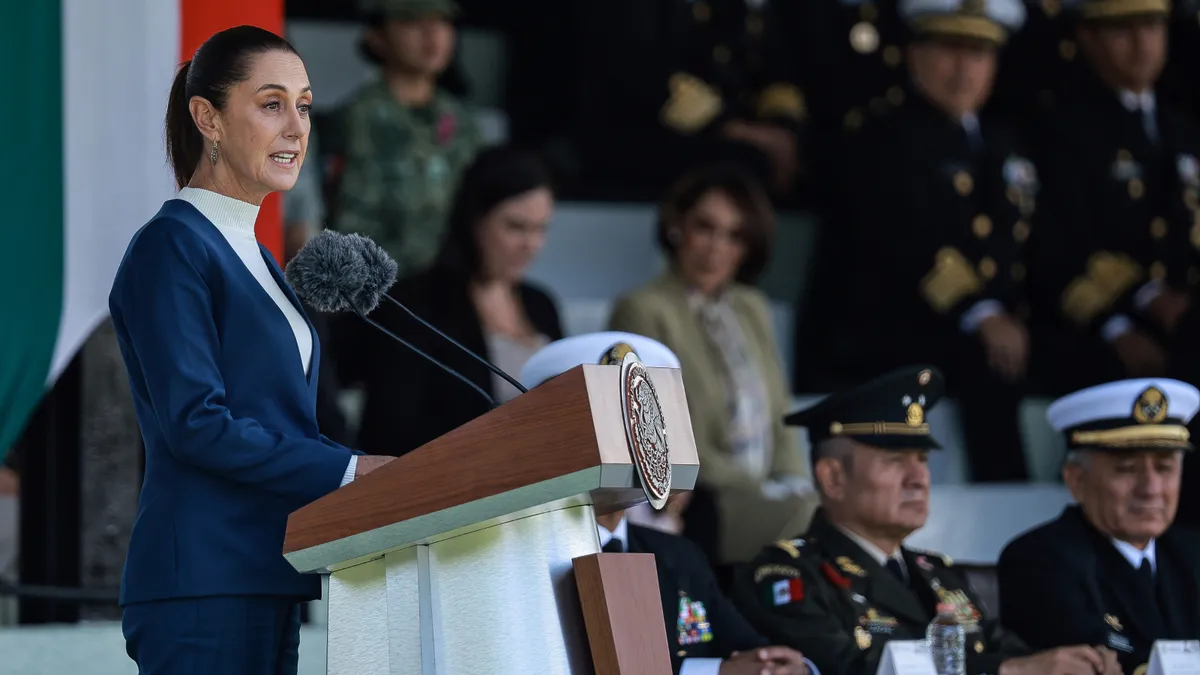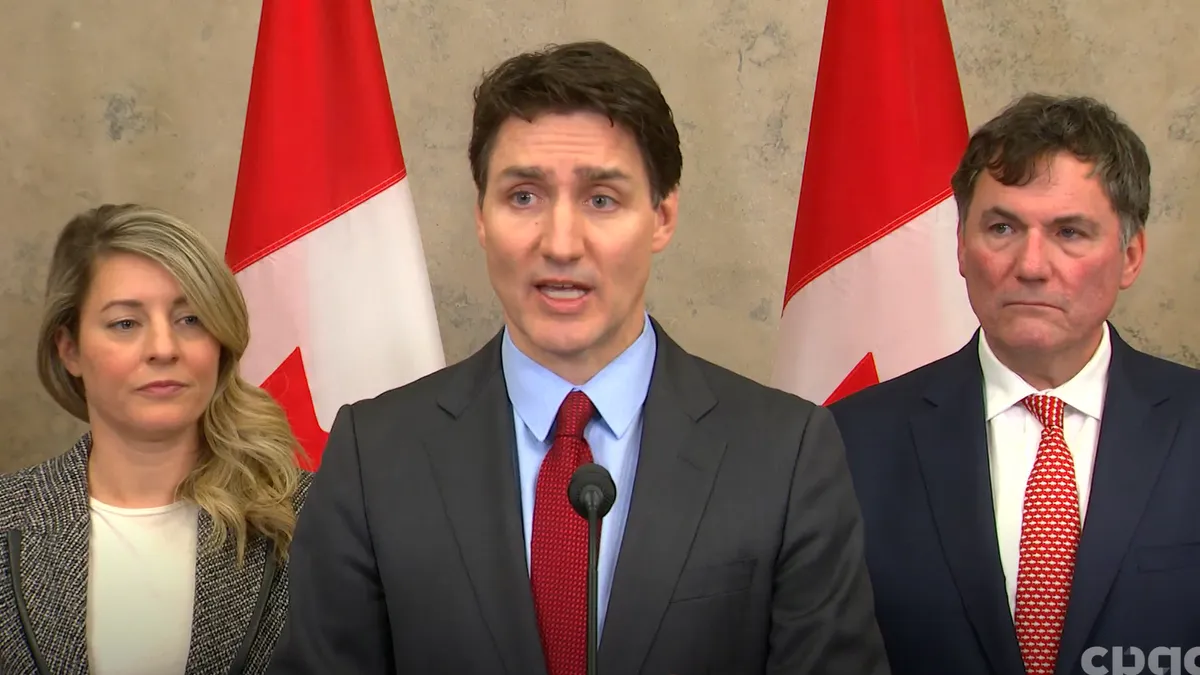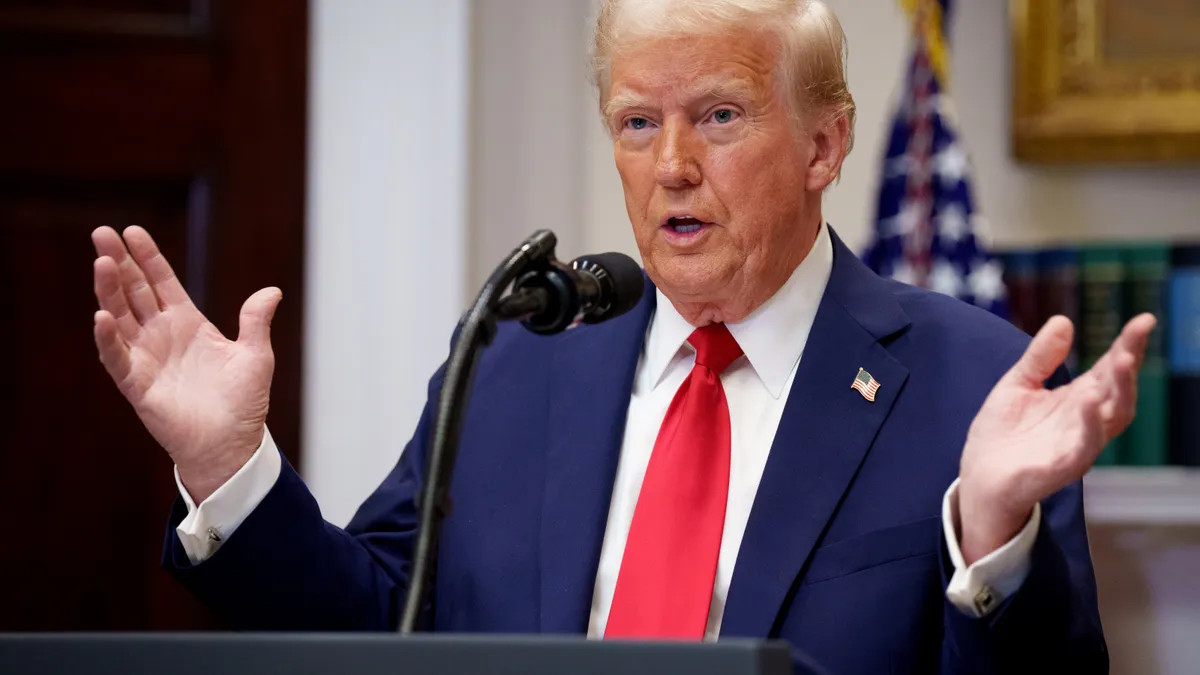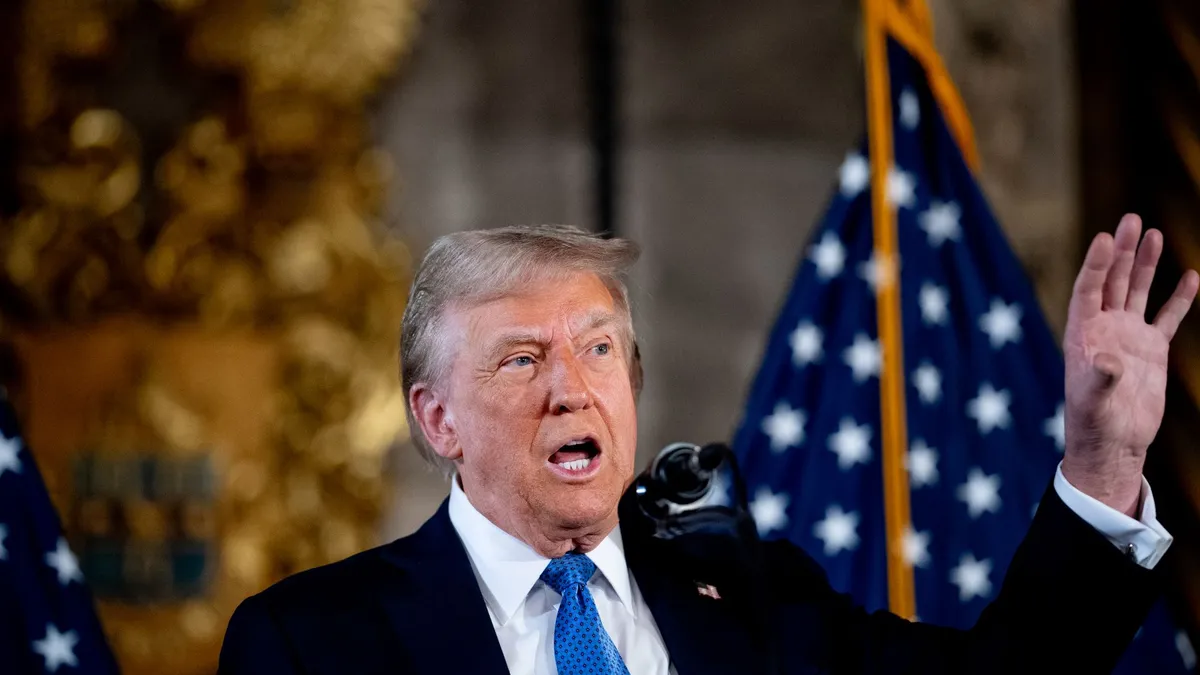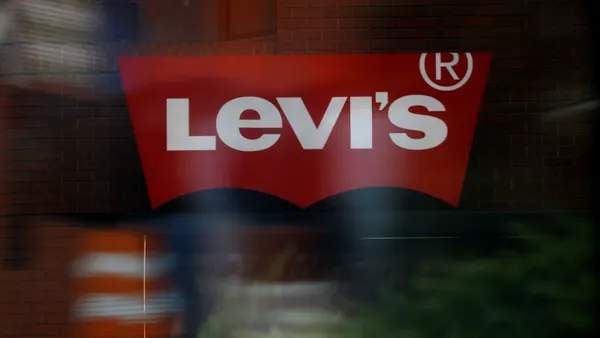Dive Brief:
- President Donald Trump on Friday issued an executive order exempting hundreds of agricultural products from his reciprocal tariffs, noting that various trade deals justified the exclusions.
- Coffee, tea, bananas, oranges, tomatoes, beef, tropical fruits, fruit juices, some fertilizers and food products used for religious purposes are among the 237 classifications and eleven categories of agricultural products now exempt from the administration’s reciprocal tariffs, per a customs notice and fact sheet.
- The new tariff exemptions are effective retroactively, with goods entered into the U.S. for consumption (or withdrawn from a warehouse for consumption) as of Nov. 13, qualifying for the reciprocal-tariff-free treatment. Refunds will be granted in accordance with normal customs procedures, per the order.
Dive Insight:
Since April, many agricultural products have been subject to a minimum 10% global tariff — or more, in some countries’ cases — as part of the Trump administration’s reciprocal tariff policy. However, over the past few months, the administration has periodically adjusted the list of products that are subject to those tariffs.
The White House said the agricultural exemptions result from the administration’s progress on various trade deals, including with countries that produce agricultural goods not commonly grown in the United States.
In the past few months, the U.S. has formalized trade agreements with Cambodia and Malaysia, while reaching “framework” deals or otherwise announcing progress on deals with El Salvador, Argentina, Ecuador, Guatemala, Thailand, Vietnam, Switzerland, the United Kingdom and the European Union, according to the fact sheet.
For example, in 2024, Guatemala was the top exporter of fresh and dried bananas to the U.S. and the second-largest exporter of tropical fruits — two products that are now excluded from reciprocal tariffs, according to data compiled by Supply Chain Dive. Similarly, in 2024, Thailand and Vietnam were the top two exporters of single-fruit juices, which includes coconut water, to the United States.
Food industry trade associations have frequently called on the Trump administration to exclude certain products from tariffs, due to sourcing limitations. In September, for example, the Consumer Brands Association asked the administration to update its tariff exclusions to include tin mill steel.
“As the largest domestic manufacturing sector by workforce, the consumer packaged goods industry proudly sources 90 percent of ingredients and inputs from American farmers and suppliers, but certain ingredients and agricultural commodities are simply unavailable domestically due to climate conditions, geography and other factors,” the Consumer Brands Association said in a statement at the time.
In August, FMI — The Food Industry Association, which represents businesses including grocery store operators and food wholesalers, said it intended to work with federal officials to create an “exemption process that excludes those [imported] foods where tariffing them doesn’t benefit U.S. industry,” such as cocoa, cinnamon and bananas.
On Friday, the trade group issued a statement praising the Trump administration’s latest actions.
“Many factors impact the price of food on grocery store shelves – including weather and crop yields, energy and transportation costs, packaging, and labor, among many others. Tariffs are an important factor in this complex mix of supply chain effects. President Trump’s proclamation to reduce tariffs on a substantial volume of food imports is a critical step ensuring continued adequate supply at prices consumers can afford,” FMI President and CEO Leslie G. Sarasin said in the statement.



